




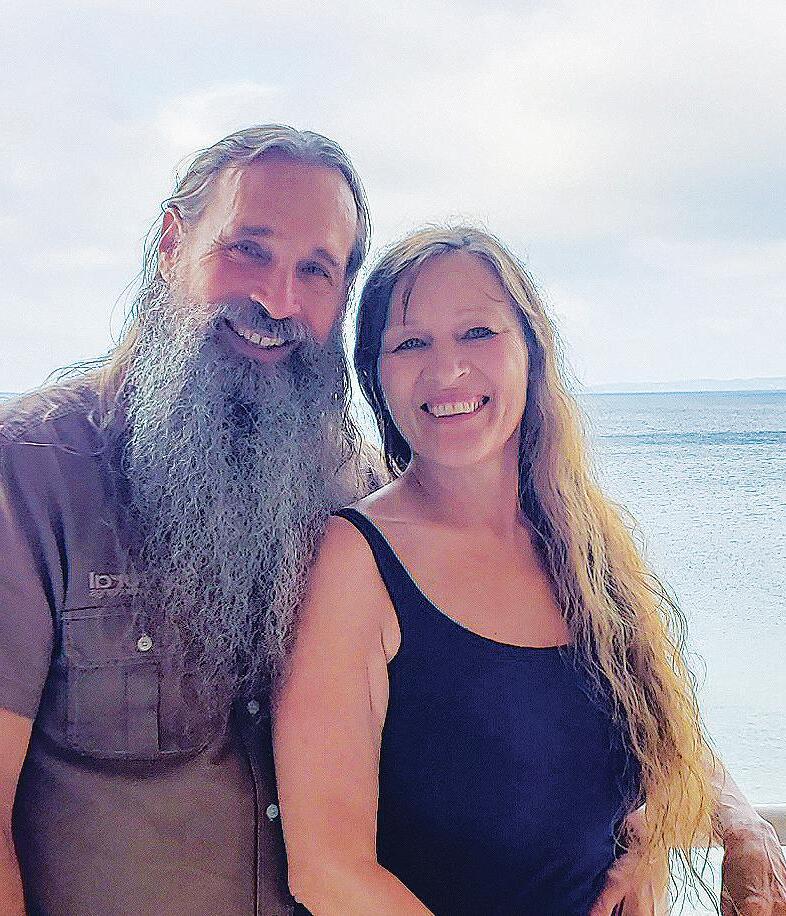
As we continue to nurture our bodies, minds and the world around us, we are constantly reminded of the profound wisdom inherent in nature’s cycles. Eating seasonally, a practice rooted in this natural wisdom, offers a multitude of benefits that resonate deeply with our quest for a healthier, more sustainable lifestyle.
Recently, I’ve taken more time to enjoy morning walks in my garden, savoring the stillness and the subtle sounds of nature waking up. These moments have reminded me of the vital bond we share with the Earth and how essential it is to nurture this connection.
One of the primary reasons to embrace seasonal eating is the unparalleled nutritional value of consuming foods at their peak. Seasonal fruits and vegetables are harvested at the height of their freshness, ensuring they are packed with vitamins, minerals and antioxidants. These nutrients not only enhance our immune system, but also boost our overall energy and vitality, providing our bodies with the tools they need to thrive.
Imagine biting into a juicy, sun-ripened tomato in the summer or savoring the crisp sweetness of an apple in the fall. Seasonal foods are not only more flavorful, but also more diverse, allowing us to enjoy a variety of tastes and textures throughout the year. This nat-
ural rotation keeps our meals exciting and aligned with the rhythms of nature, bringing joy and satisfaction to our dining experiences.
Seasonal eating encourages us to reconnect with our cultural and culinary heritage. Traditional recipes and cooking methods are often based on seasonal ingredients, offering a rich tapestry of flavors and techniques that have been passed down through generations. By embracing these practices, we honor our ancestors and preserve these valuable traditions for future generations.
Finally, seasonal eating encourages mindfulness and a deeper connection to the world around us. It invites us to slow down, appreciate the changing seasons, and reflect on the natural cycles of life. This mindful approach to eating fosters a sense of gratitude and respect for the food we consume and the earth that provides it.
As we embark on this journey of seasonal eating, let us remember that every small choice we make in our kitchens has the power to create ripples of positive change in our health, our communities and our environment. Together, we can cultivate a lifestyle that honors the natural world and nourishes our bodies, minds and souls.
Here’s to savoring the flavors of each season and embracing the harmonious rhythm of nature in our daily lives.
Bon appétit!
HEALTHY LIVING HEALTHY PLANET
LOCAL CONTACT
734-757-7929
Publisher@HealthyLivingMichigan.com HealthyLivingMichigan.com
P.O. Box 2717, Ann Arbor, MI 48106
Subscriptions are available for $120 (for 12 issues) by emailing the above address.

Natural Awakenings is printed on partially recycled and fully recyclable newsprint with black soy ink.
Publishers John & Trina Voell III
Design & Production John & Trina Voell III
Ad Design Josh Halay
Editors John & Trina Voell III
Proofreader Randy Kambic
Calendar Theresa Archer
Sales & Marketing John & Trina Voell III Rachel Cara
Distribution Rachel Cara
Website Design Locable
Website & Social Media Carolyn Coogan SherTech
CEO Kimberly B. Whittle
National Editor Sandra Yeyati
Editor Brooke Goode
Copy Editor/Proofing Melanie Rankin
Layout Flip180 Media
Natural Awakenings
Publishing Corporation
350 Main Street, Suite 9B
Bedminster, NJ 07921
Ph: 239-206-2000
NaturalAwakenings@KnoWEwell.com
© 2024 by Natural Awakenings. All rights reserved. Although some parts of this publication may be reproduced and reprinted, we require that prior permission be obtained in writing. Natural Awakenings is a free publication distributed locally and is supported by our advertisers. Please call to find a location near you or if you would like copies placed at your business. We do not necessarily endorse the views expressed in the articles and advertisements, nor are we responsible for the products and services advertised. Check with a healthcare professional regarding the appropriate use of any treatment.
Northern Michigan / Grand Traverse Region HealthyLivingMichigan.com




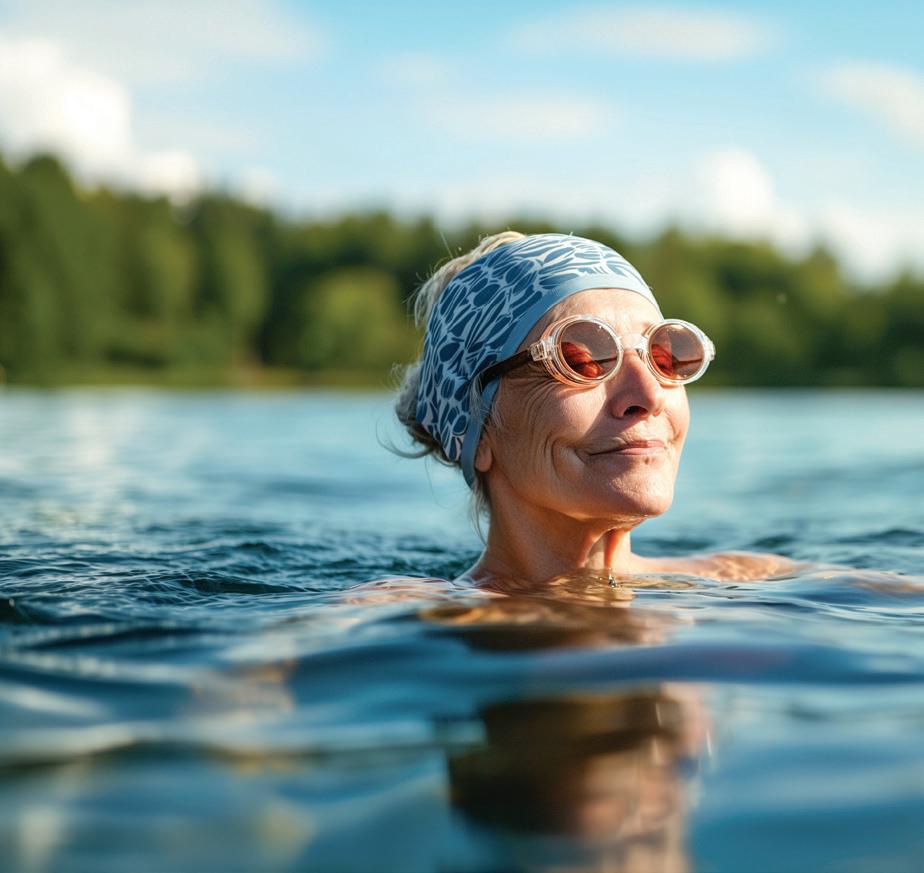
choices about their health and environmental impact.
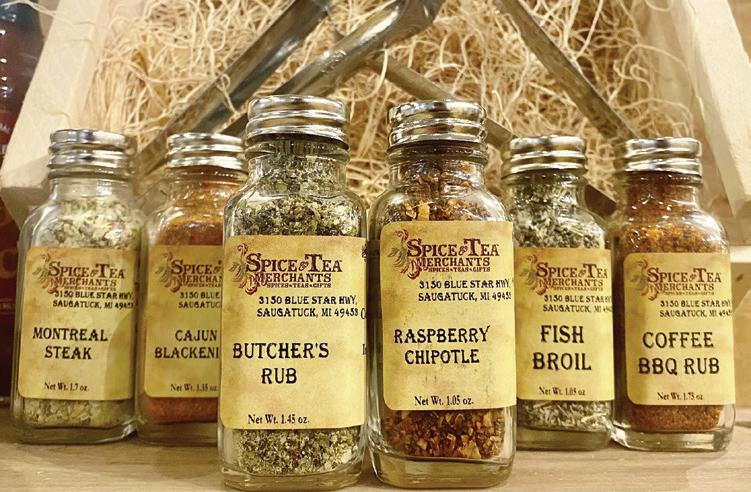
Traverse City Spice and Tea Merchants offers an extraordinary selection of spices, teas and culinary accessories that delight food enthusiasts and casual cooks alike. The store is a treasure trove for those looking to enhance their culinary creations with unique and high-quality ingredients. Customers are greeted with an array of loose-leaf teas, exotic spices, handcrafted spice blends and various specialty items that are difficult to find elsewhere.
The store prides itself on providing the finest ingredients from around the world, ensuring that every product meets the highest standards of quality. Whether we are in search of a rare spice for a special recipe or a soothing tea blend to relax with, Traverse City Spice and Tea Merchants has something to offer. The friendly and knowledgeable staff are always ready to assist with recommendations and cooking tips, making each visit a pleasant and enriching experience.
In addition to spices and teas, the shop also features a variety of accessories, including teapots, infusers and grinders, to help customers fully enjoy their purchases. The ambiance of the store, combined with its extensive product range, makes it a must-visit destination for both locals and tourists exploring Traverse City’s vibrant downtown area.
Location: 145 E. Front St., Traverse City. For more information, call 231-947-7423 or visit SpiceMerchants.biz/traverse-city-spice-store. See ad page 15.
Oryana Community Co-op continues to be a cornerstone in Traverse City’s community, offering an extensive selection of natural, organic and locally sourced products.

Established in 1973, Oryana is dedicated to supporting local farmers and producers, providing high-quality food produced in ecologically sound ways. The co-op’s commitment to sustainability and transparency is evident in its diverse product range, which includes organic chocolate, fair trade coffees, kombucha, honey and fresh produce, ensuring customers can make informed
Oryana operates two primary locations: the original Oryana 10th Street and the larger Oryana West. The 10th Street store is nestled in a walkable neighborhood, offering a European-style market experience with a robust selection of local and organic goods. Meanwhile, Oryana West, located in the Buffalo Ridge Shopping Center, provides an expanded shopping experience with 2.5 times the floor space of the 10th Street location. This store features a full-service deli, meat and seafood counter, and an abundant produce section with both organic and conventional options.
Both locations uphold the co-op’s stringent buying guidelines, prioritizing certified organic and local products. Oryana West also includes a wellness section with vitamins, herbs and natural body care products, catering to various dietary needs including vegan, gluten-free and allergen-free items. The knowledgeable staff at both stores are always ready to assist customers in finding the perfect products to meet their needs.
Location: 260 E. 10th St., and 3587 Marketplace Cir., Traverse City. For more information, call 231-947-0191 or 231-486-2491 or visit Oryana.coop.
Waterside Wellness invites the communi ty to join Alice Rubert for an enchanting New Moon and Full Moon Sound Bath Meditation series. Taking place in the serene gardens of Pine Hill Nursery, in Kewadin, this unique event offers a rejuvenating experience that harmonizes with nature’s rhythms.
Rubert, a renowned wellness practitioner at Waterside Well ness, will guide participants through a meditative journey using the soothing sounds of crystal bowls. This practice is designed to help individuals set their intentions for the month during the New Moon Sound Bath Meditation, starting at 9 a.m. on July 5.
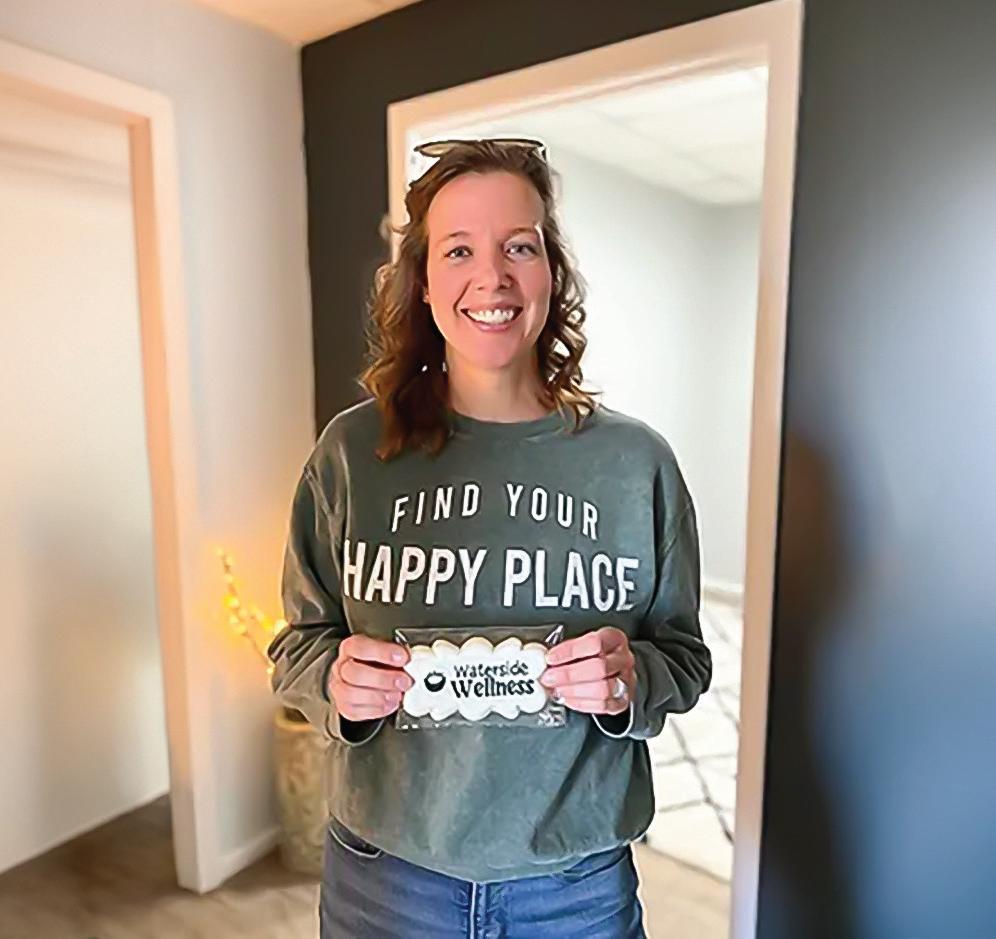
In addition, a Full Moon Sound Bath Meditation will be held at the same time on July 21, providing another opportunity to release and reset. This series, co-hosted by guest Denise Manns, promises to offer profound relaxation and a deeper connection to the natural world.
Participants are encouraged to bring a yoga mat, blanket and any personal comfort items to enhance their experience. The tranquil setting of Pine Hill Nursery provides the perfect backdrop for this immersive meditation series.
Location: 886 US-31, Kewadin. For more information, call 231-5992824 or visit PineHill-Nursery.com. See ad page 29.
Authentic Health, a leading provider of holistic health and wellness services in downtown Traverse City, continues to thrive under the expert guidance of its owner, Dr. Jill Balla DC. The clinic remains committed to offering a comprehensive range of services, including chiropractic care, nutritional therapy and cold laser therapy, all aimed at optimizing patient health.
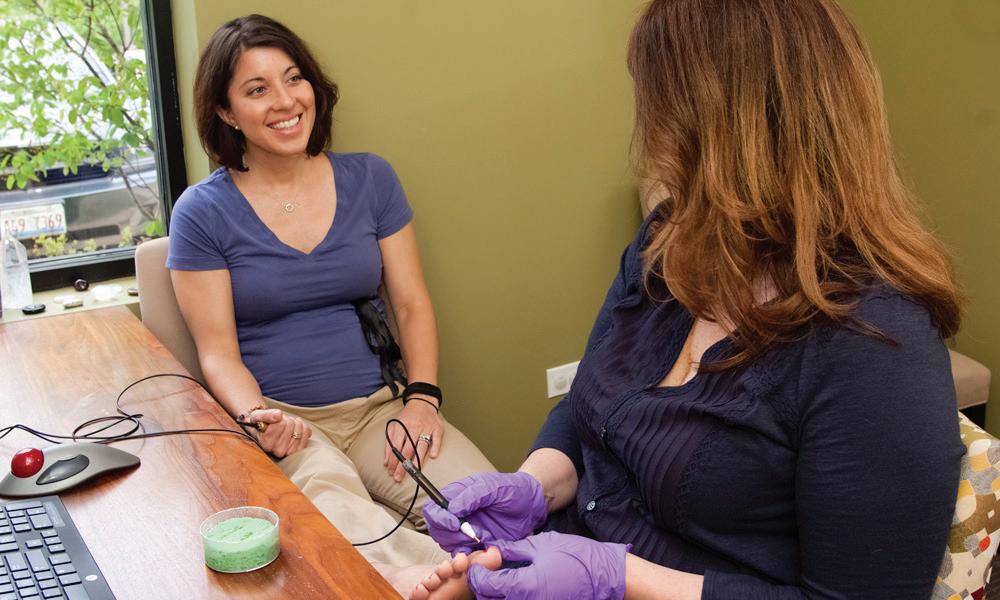
of calm and centeredness. The welcoming atmosphere aims to make yoga accessible, whether the participant is a beginner, returning after a break or exploring a new studio.
Dharamsala TC’s Front Street location features two studio rooms with stunning bay views, locker rooms with keyed lockers, a cozy welcome area for tea, a boutique and convenient paid parking. The Robinwood Court location also boasts two studio rooms, trapeze yoga facilities, a welcoming area, a boutique and free parking.
Dharamsala TC emphasizes personalized attention, encouraging guests to check in before and after their first class to ensure they feel comfortable and informed. The experienced team at Dharamsala TC is dedicated to making yoga an inclusive and enjoyable experience for everyone.
Location: 869 Robinwood Ct., and 319 Front St., Traverse City. For more information, call 231-421-3808 or visit DharamsalaTC.com.
Balla, a highly qualified chiropractor, holds a Bachelor of Science degree from Northern Michigan University and a Doctor of Chiropractic degree from Palmer College of Chiropractic. With over 300 hours of post-doctoral training in nutrition, she is a recognized expert in therapeutic nutrition and holistic health approaches.
Nutritional therapy at Authentic Health begins with a thorough assessment to create personalized wellness plans. These plans include supplement protocols using top-quality whole food supplements and herbal remedies, along with lifestyle adjustments. Balla addresses various conditions such as acid reflux, ADHD, depression, fatigue, fibromyalgia and more, ensuring tailored solutions for each patient.
The clinic also utilizes Electro-Acupuncture (EAV) testing, a non-invasive procedure that identifies stressed organs, nutritional deficiencies and other health concerns. This information guides the development of customized supplement protocols to restore balance and promote optimal health.
Location: 415 E. Front St., Traverse City. To schedule an appointment or for more information, call 231-633-9393 or visit AuthenticHealthLLC. com. See ad page 7.

Dharamsala TC offers yoga, mindfulness and holistic health classes at two beautiful locations in Traverse City. Catering to all ages and levels, Dharamsala TC provides a variety of classes, workshops and yoga teacher training programs.
Upon entering either of the serene studios, guests will feel a sense
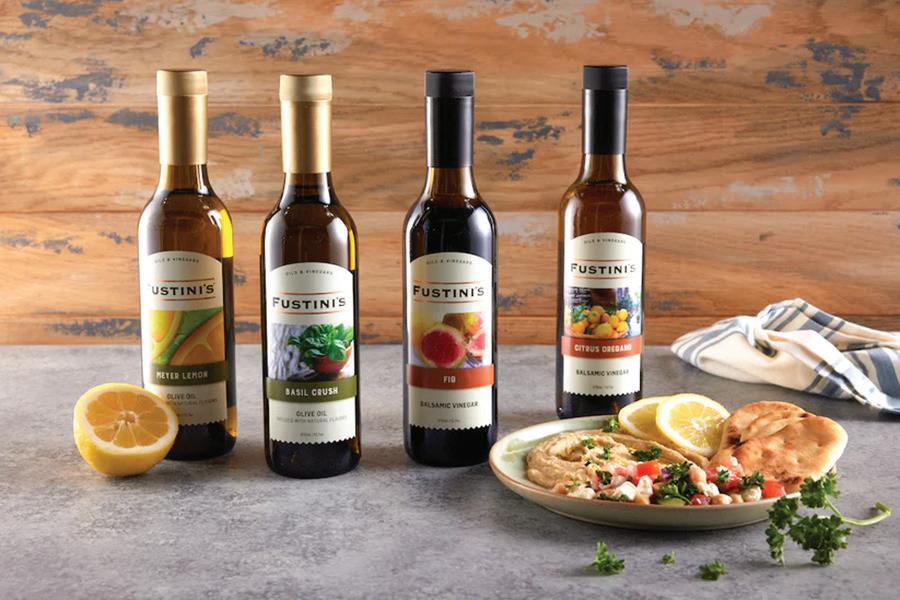
Fustini’s Oils and Vinegars, located in the heart of downtown Traverse City, is redefining the gourmet culinary scene with its exceptional selection of imported extra-virgin olive oils and aged balsamic vinegars. Established in 2008 by co-founder and owner Jim Milligan, Fustini’s has become a destination for food enthusiasts seeking high-quality, artisanal products that inspire creative and delicious cooking.
Fustini’s sources its olive oils and vinegars from select artisans and small-batch producers worldwide, ensuring freshness and superior quality in every bottle. Customers can explore a variety of infused olive oils, specialty oils and both balsamic and non-balsamic vinegars, each offering unique flavors to enhance any dish. Beyond oils and vinegars, the store features a range of pantry items, including tapenades, pastas, jams, mustards and cookbooks, making it a onestop shop for gourmet cooking essentials.
Fustini’s also offers an array of engaging culinary experiences. The store hosts cooking classes led by expert chefs, where participants can learn to prepare exquisite dishes using Fustini’s products. These classes, available both in-person and virtually, provide an interactive platform for food lovers to expand their culinary skills and enjoy a hands-on gourmet experience.
Committed to fostering a love for gourmet cooking, Fustini’s regularly introduces new products and seasonal recipes. Their dedication to quality and customer satisfaction has earned them a loyal following and glowing reviews from both locals and visitors.
Location: 141 E. Front St., Traverse City. For more information, call 231-944-1145 or visit Fustinis.com.

Imagine a toilet that not only cleans itself but also performs a urinalysis to detect hydration levels, urinary tract infections and kidney issues. A trip to the restroom may be the first step in monitoring and maintaining health and wellness, as a number of new products with medical monitoring features are finding their way into the latest bathrooms.
Toi Labs makes smart toilets equipped with advanced sensors that non-invasively monitor fluid intake levels, stool and urine contents, and other vital health metrics without any burden to the user. Withings, a French company, offers a toilet device that detects a large variety of biomarkers found in urine and offers actionable advice for improving health.
CareOS has unveiled the first AI-powered smart mirror for mental wellness that the company asserts can identify mood and help manage stress. Look into the mirror for skin care recommendations and how to correct yoga poses. A Canadian company, NuraLogix, offers a mirror that detects blood pressure and vital signs and assesses disease risk. A 2020 study found that smart floor sensors could be used to predict fall risk and signs of illness. Smart bath maker BBalance is hoping to launch a mat next year that can measure weight and body composition, and detect posture and balance to predict the risk of neurodegenerative disease.
Several companies are experimenting on human subjects to develop gene editing that is performed inside the body. Such therapies differ from a recently approved treatment for sickle-cell anemia

that removes bone marrow from the body before editing the genetic material and reintroducing it into the patient.
Intellia Therapeutics and Regeneron Pharmaceuticals are in clinical trials to use gene editing to knock out a gene that causes fibrous protein clumps, which can accumulate in organs and nerves, increasing the risk of heart failure and other serious complications. Verve Therapeutics is enrolling patients to test a gene-editing protocol designed to reverse the effects of a genetic disease that leads to severely elevated cholesterol and increased risk of early-onset cardiovascular disease. One caveat: These therapies carry the risk of editing unrelated genes.

Cambridge University’s Early Cancer Institute recently received an $11.7 million anonymous donation to further its research. The Institute is focused on detecting cancers before they produce symptoms and spread, which then requires expensive medical treatments that are not always effective. One team there is using 200,000 blood samples taken 10 to 20 years ago from ovarian cancer screening participants to identify genetic markers in those that later developed the disease.
Another team developed a cytosponge to collect cells and identify


a protein associated with precancerous esophageal cancer. The Institute also has a team that is trying to pinpoint the biomarkers associated with prostate cancer. Their goal is to assist in the development of new and more effective ways to treat cancer.

Sir Isaac Newton’s third law of motion states that for every action there is an equal and opposite reaction. Scientists now understand how human sperm and single-celled algae seemingly defy this law. In research from Kyoto University and published in PRX Life, scientists explain how sperm, with their whip-like tails and algal flagella, propel themselves through viscous fluids that should, in theory, resist their movement. Because the cells generate their own energy, they thrust beyond the equilibrium in Newton’s law using an odd elasticity. The researchers believe their understanding of this unique aspect of nature will help in the development of elastic swimming micro-robots that can be used for drug delivery, sensing and microsurgery.

A study by the Columbia University Mailman School of Public Health and published in Proceedings of National Academy of Sciences quantified the effect of pregnancy on biological aging. The study included more than 1,700 men and women from the Philippines aged 20 to 22 years old. The researchers concluded that the energy expended in reproduction comes at an expense. Across six epigenetic clock measurements, pregnancy was found to accelerate the women’s biological aging compared to those that had no pregnancies, and multiple pregnancies accelerated the women’s biological age on two of the epigenetic clock measures. Pregnancy did not result in aging of the men in the study.
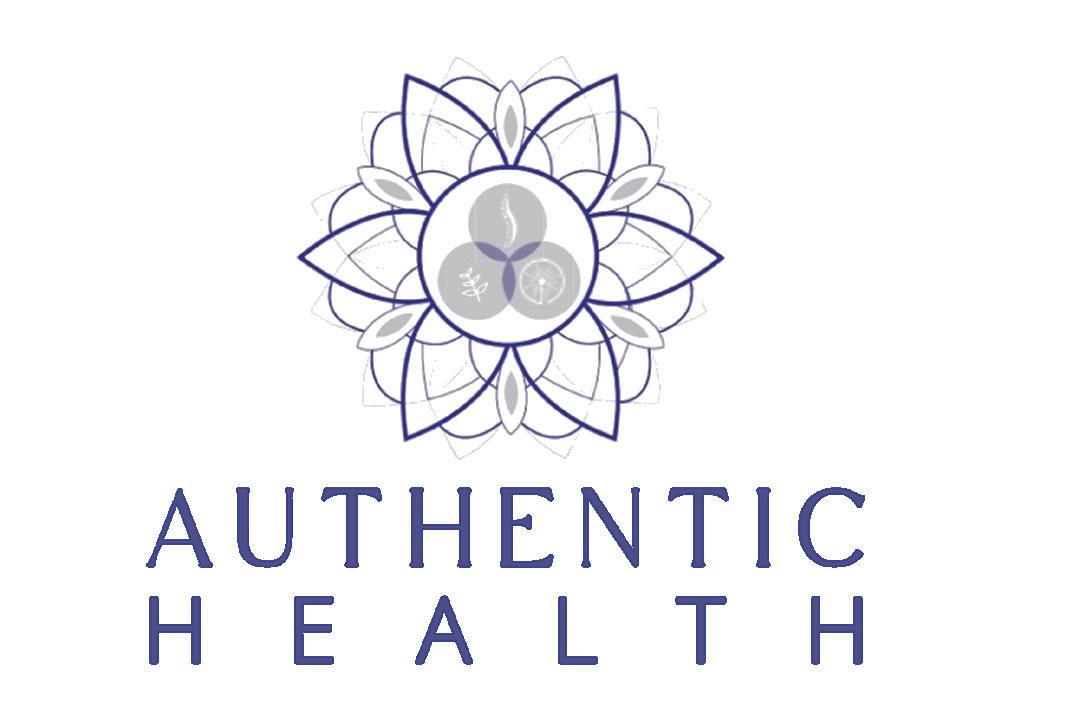
Have a Healthy Tip to Share? Publisher@HealthyLivingMichigan.com

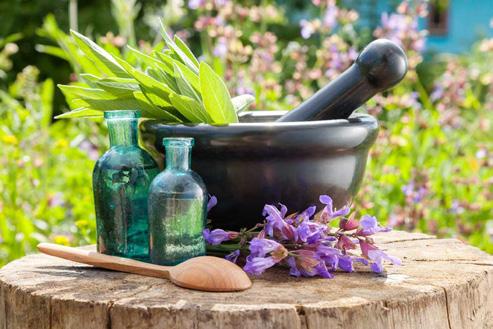
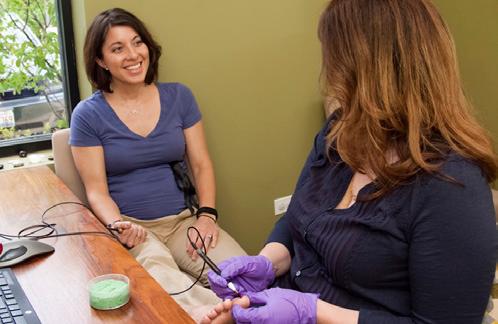
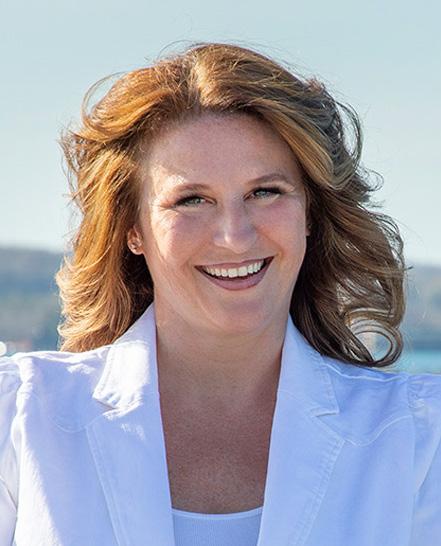
In every garden’s life, there comes a time when weeds attempt to take over, turning what was once a serene escape into chaos. But combatting weeds does not require a chemical solution. By adopting these eco-friendly practices, we can maintain soil health and biodiversity, eliminate toxin exposure to people and pets, contribute to healthier air quality and lower the cost of weed management.
• Plant Spacing. Plants need space to grow, but too much of an open area can lead to weed proliferation. The goal is to keep plant spacing narrow enough to create a canopy that limits sunlight to areas where weeds would otherwise flourish. For an optimal garden layout, follow the instructions that often come with purchased plants or seed packets, or use an online space calculator like ViteGreenhouses.com/plantcalculator.asp.
• Solar Power. Covering the soil with clear plastic during warm months creates a greenhouse effect that heats the soil, killing weed seeds and harmful pathogens. It’s a great way to prepare garden beds without lifting a hoe.
• Mulch Magic. A thick layer of organic mulch comprised of wood chips, straw or grass clippings is a formidable barrier against weeds. Mulch offers the added benefits of regulating soil temperature, retaining moisture, providing nutrients, preventing erosion and inviting beneficial earthworms.
• Hand Weeding. There’s something meditative about getting down on hands and knees and connecting with the garden.
Pulling weeds removes invaders directly from the root, preventing regrowth.
• Natural Predators. Birds, insects and even certain types of fungi feast on weed seeds. Installing bird feeders and creating habitats for beneficial insects can tip the balance in the garden’s favor.
• Boiling Water Blitz. For the toughest of weeds sprouting in cracks and crevices, pouring boiling water directly onto them will cook them from the inside out. Just be mindful of surrounding plants.
• Vinegar Solution. Spraying a vinegarbased solution directly onto the leaves of
unwanted plants can dehydrate and kill them, making this a quick and easy spot treatment. Vinegar is non-selective, so precision is key. Martha Stewart’s recipe includes a well-combined mixture of one tablespoon of dish soap, one cup of salt and one gallon of white vinegar.
• Soil Health. Robust soil is the foundation of a thriving garden and a natural deterrent to weeds. Regular supplementation with compost and organic matter improves soil structure and fertility.
• Native Plants. Selecting plants that are native or well-suited to the area’s climate and soil conditions creates a resilient ecosystem. Such plants are more likely to thrive and outcompete weeds, reducing the need for maintenance.
• Barrier Methods. For particularly vulnerable areas, physical barriers such as landscape fabric or cardboard can prevent weeds from taking root. Covered with mulch, they blend seamlessly into the garden.
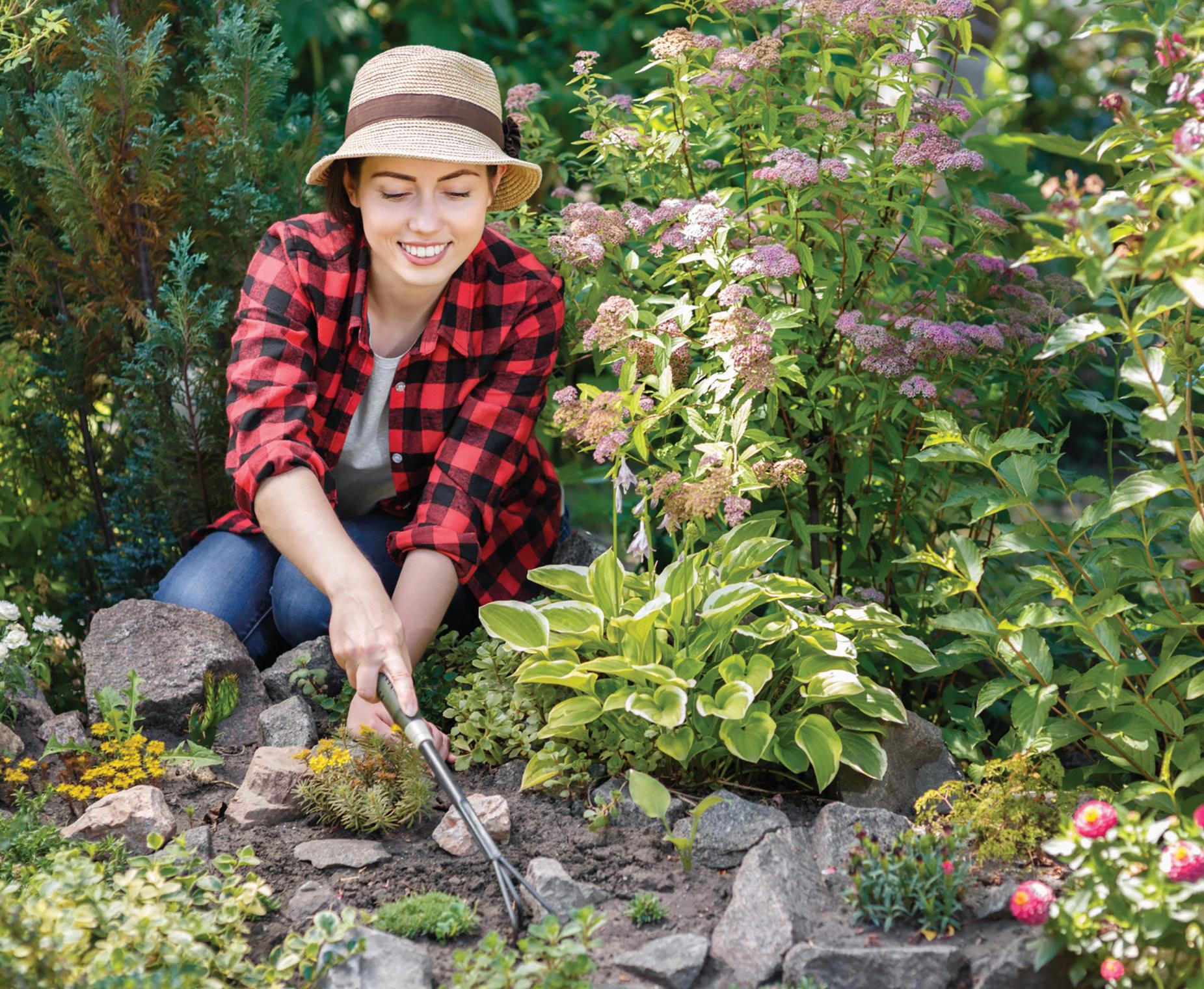

Many women experience racing thoughts and worry about whether they will ever feel truly energetic again. Unbeknownst to them, they might be slowly ruining their health. Hypothyroidism, or low thyroid function, is often the underlying cause of many common symptoms that women develop in mid-life. These symptoms can include depression, anxiety, weight gain, fatigue, brain fog, poor sleep, constipation and hair loss. Unfortunately, many cases of hypothyroidism are misdiagnosed or improperly treated within the standard healthcare model, leaving women confused, frustrated and feeling dismissed.
Hypothyroidism can develop due to various factors, including unstable blood sugar levels, gut and digestive health issues, adrenal fatigue, exposure to environmental hormones and brain chemistry imbalances. Addressing these root causes is crucial for effective treatment.
A promising approach to managing hypothyroidism involves functional blood chemistry analysis. This method evaluates a person’s symptoms, health history and comprehensive blood chemistry panels to provide an accurate diagnosis and treatment plan. Often, standard lab tests may show “normal” results while symptoms persist, highlighting the need for a thorough analysis of all thyroid markers, not just TSH.
One of the leading practitioners in this field, Dr. Jena Hullman, DC, CFMP, emphasizes the importance of having a knowledgeable expert interpreting lab results. As a certified functional blood chemistry expert, Dr. Jena has helped women across the country identify if they have low thyroid function, understand why it is low and develop natural treatment plans. Her signature programs incorporate high-quality supplements to replenish missing vitamins and minerals, eliminate internal sources of inflammation, stabilize blood sugar, nourish the adrenal glands and support brain chemistry. These programs aim to transform a woman’s health within four to six months.
Studies support the efficacy of this approach. For example, research published by the Mayo Clinic highlights that “one in eight women will develop a thyroid condition during their lifetime.” Additionally, lifestyle adjustments, such as avoiding hormone-disrupting products, maintaining a balanced diet and managing stress, are essential components of ongoing treatment. This approach offers a compre-

hensive solution to hypothyroidism, addressing the root causes and guiding women on their journey to optimal health.
Location: Big Beautiful Life, 515 S. Union St., Traverse City. Virtual telehealth visits are welcome. To schedule a free discovery call or for more info, call 231-421-9189 or visit BloodworkExpert.com. See ad page 21.
by Carrie Jackson

Each season brings a unique bounty of fresh food to sustain and nourish us. A ripe tomato off the vine in the summer or a hearty winter squash stew highlights what the Earth naturally offers. Seasonal eating is a rhythmic approach that is more sustainable than relying on grocery-store staples and connects us to the world around us. Combining seasonal eating with the Ayurvedic concept of balancing our
doshas helps to maintain harmony with nature. It also helps support local farmers, reduce carbon emissions, maximize the food’s nutritional value and nourish holistically.
The Fresher the Better Seasonal eating is intuitive, but modern technology and busy lifestyles get in the way. “For thousands of years, people ate seasonally all the time, as there was no other
option,” says Erin Casperson, director at Kripalu School of Ayurveda, a global leader in mindfulness education. “They trusted that each harvest gave us exactly what we needed to survive and thrive. It is only recently, with the development of refrigeration and modern transport, that we are able to access food from other areas of the world and store it for long periods of time.”
Eating local food when it is fresh not only helps to maximize the food’s nutritional value, it strengthens our connection to its origin. “From an Ayurvedic perspective, we look at the prana, or life force, in food,” explains Casperson. “Generally, the shorter it’s been off the plant, the more life, or nourishment, it will supply. When it’s treated with pesticides and sits in storage or refrigeration for days or weeks, it starts to lose that life force. Looking at a freshly picked strawberry, you can see the value it has. If I pick up a plastic box of spinach at the grocery store, there’s no connection. I have no idea how long it’s been traveling or what it’s been exposed to.”
Kadiatou Sibi, a board-certified Ayurvedic and reiki practitioner and founder of Los Angeles-based A Web of Wellness, recommends frequenting farmers markets, co-ops and grocery stores that offer locally grown food to maximize freshness. “Consuming foods during their harvest honors the natural cycle of the Earth. The crops are brighter, tastier and more nutritionally dense. By purchasing food from a [farmers] market, you are supporting marginalized communities, which historically are often women and families working in the fields. Cultivating
locally grown foods also helps to maintain the biodiversity of crops and prevents big corporations from taking over the land.”
Cutting out long-distance transportation doesn’t just increase the food’s freshness, it is better for the environment, too. “When we eat locally, we lower the carbon footprint and greenhouse gas emissions it takes to access the food. It also eliminates the need for pesticides and other harmful agents that make the food last longer,” Sibi explains.
Eating seasonally is a cornerstone of Ayurvedic practices, which Sibi says are rooted in a deep connection with nature. “The idea of seasons is based around the cycles of the moon and sun,” she asserts. “Food is one important way we can balance ourselves holistically. Seasonal eating teaches us to wait for the right time and not rush nature. We can look forward to watermelon in the summer and Brussels sprouts in the winter. We learn to cultivate deep gratitude and respect for the land and all it provides for us. It fosters deep stewardship for the Earth.”
Incorporating the Ayurvedic understanding of doshas into our diet further supports our connection to nature and intuitive eating. “According to Ayurveda, everything and everyone is comprised of five elements: space, air, fire, water and earth,” says Veena Haasl-Blilie, founder of Minnesota-based Saumya Ayurveda. “These elements combine to form three basic energy properties called the doshas. These foundational energies, known as vata, pitta and kapha, are the building blocks of our universe. While all three doshas are present in every one of us, they manifest to varying degrees. Our distinct physical, mental and spiritual traits are the result of our unique dosha constitution.”
Disruptions in our daily routines, stress and diet changes can cause doshas to get out of balance. By mindfully incorporating dosha-balancing foods and herbs into our day, our bodies and minds can reset. “In Ayurveda, food is medicine. When we eat to balance the doshas, we are eating in the most supportive and nourishing way possible,” explains Haasl-Blilie. “Instead of a
one-size-fits-all diet, we are eating what is balancing to us specifically in that season.”
Understanding an individual’s own dosha type is a key starting point. Haasl-Blilie recommends, “Fiery pitta is best balanced through naturally sweet foods like fruit, most grains, squash, root vegetables, milk and ghee. The best tastes for balancing pitta are sweet, bitter and astringent, while sour, salty and pungent tastes should be minimized. Airy vata has a cold, dry, light nature that can be countered with foods that are warm, moist and grounding, such as hearty soups and healthy fats. Sweet, sour and salty foods help to balance it. For kapha’s cool, dense, oily nature, we should favor food that is light, dry and easy to digest, ideally served warm or hot with invigorating herbs or spices. Sweet, sour and salty tastes should be minimized.”
Cooking with seasonal food that supports dosha balance helps to further nourish holistically. Chef Divya Alter is a cookbook author and the co-founder of Divya’s, which combines culinary education, good-for-you packaged foods and a plant-based restaurant in New York City. Aiming to offer practical ways to bridge the ancient wisdom of food with modern living beyond the boundaries of India, she notes, “Part of my mission is to show people how to apply the universal Ayurveda principles to every part of the world, incorporating the ancient principles of food compatibility and digestion into local cuisines.”
Alter says that in warmer months, choosing balancing foods helps to naturally regulate our bodies and our doshas. “Summer is the season of outdoor activities, travel, vacationing and more. The heat and exertion tend to deplete our systems, but nature’s peak harvest season provides us with abundant produce to help us replenish. Ayurveda is all about balancing with nature, so in the hot summer, when we tend to sweat more and feel dehydrated, we need to incorporate cooling and hydrating foods. We feel extra pleasure eating the juicy seasonal fruits like peaches, apricots, berries and watermelon because they quickly cool and nourish us. Zucchini, fennel, leafy greens, okra, carrots and green beans are all great vegetables to give us minerals, vitamins
and fiber, plus keep our bodies cool. Coconut in every form is our best friend in summer because it is very cooling and nourishing. Fresh coconut water is the best natural electrolyte drink, and you can add fresh coconut milk to your curry or smoothie. For plantbased protein, mung beans and red or green lentils are all great choices.”
For a simple complement to any dish, Alter recommends using fresh herbs, most of which can be grown locally. “Cilantro, basil, parsley, dill, rosemary, thyme, curry leaves and tarragon, and the cooling spices such as coriander, fennel, cumin and cardamom, add flavor without overheating the body. I use very little or no chili, and if my digestion needs a bit more heat, then I’d use warming spices like black pepper, turmeric, cinnamon and ginger in small amounts,” she says.
Sibi points out that using fresh herbs and spices while cooking also helps to preserve cultural traditions. “While they may not have originated here, locally grown and ethically sourced herbs honor global cooking and customs,” she says. “Incorporating fresh cilantro into a Mexican dish, turmeric into an Indian recipe, or parsley into a Mediterranean meal reminds us of their origins. Besides the medicinal benefits, the flavors are more palatable, and it’s a valuable way to teach these traditions to a younger generation. They learn that what you put in your mouth doesn’t just affect you, but has a larger global impact.”
While this may seem like a lot to consider when making daily food choices, Casperson recommends starting with seasonal eating and balancing our doshas using ingredients that are readily available. “Seasonal eating is more accessible, because you can literally choose what to eat by what is in the market. From there, have some fun with it,” she suggests. “Look up recipes and menus that you can easily digest to support your dosha balance, and add in herbs grown in your own garden. Sit down and eat in a relaxed setting without distractions and really connect with how you’re nourishing yourself.”
Carrie Jackson is a Chicago-based freelance writer and frequent contributor to Natural Awakenings. Connect at CarrieJacksonWrites.com.
by Sandra Yeyati

Mark J. Tager, M.D., instructs medical practitioners and consumers in new approaches to wellness, emphasizing the complementary treatment of chronic conditions and the use of personalized nutrition as a cornerstone of optimal health. His synergistic approach to skin health and beauty has been shaped by years working in the integrative, aesthetic and regenerative fields.
Tager received his undergraduate and medical training at Duke University and currently
teaches at the school’s Integrative Medicine Center. He has served as founding vice president of marketing for Reliant Technologies, where he helped launch the Fraxel laser for skin rejuvenation, and also served in executive positions with Syneron and Lutronic, two leaders in advanced aesthetic technologies.
The author and co-author of 10 books and hundreds of educational videos recently created the 40-hour continuing education course “Personalized Nutrition for
Practitioners” on behalf of the American Nutrition Association. His most recent book is Feed Your Skin Right: Your Personalized Nutrition Plan for Radiant Beauty, which serves as the basic content for the 10hour online professional training program “Inside Skin Beauty”.
Healthy skin begins with good barrier function. The epidermis—the outermost layer of
skin—keeps water and key nutrients in and helps repel harmful agents such as bacteria and chemicals. Healthy skin has a glow that comes from good blood flow, rapid skin turnover, ample collagen and clarity—by this I mean skin that has been protected from harmful UVA/UVB rays to minimize aging spots and premature skin damage. Radiant skin reflects light, so when someone is taking care of their skin, there is literally a glow about them.
What foods do you recommend for healthy skin?
Make plants a central part of your diet. A wide array of colorful plants provides the body with key antioxidants that help ward off the effects of oxidation. Interestingly, many plant ingredients have a mild, skin-protective effect when eaten because their key function in the plant is to protect it from harmful UV rays. While the effect is nowhere near that provided by sunblock, you do gain a “natural SPF” [sun protection factor] of 3 or 4 from some of the yellow-orange carotenoid phytonutrients, as well as the red-purple anthocyanins.
The second benefit of plant-based foods is providing fiber to the body. In addition to promoting healthy bowel movements, fiber is the preferred food of the helpful gut bacteria. They convert fiber into, among other things, short-chain fatty acids which, in the gut, protect the lining, and, when they enter the bloodstream, help to maintain a healthy skin microbiome.
What aesthetic procedures should we consider?
I’m a big fan of fractional rejuvenation, which essentially produces small thermal wounds that heal quickly, leading to skin turnover and bringing heat into the dermis for collagen remodeling. Microneedling creates a similar effect, although it does not have the added benefit of the heat going into the dermis. There are multiple products that combine microneedling with radio-frequency heat, and this provides a dual action.
How do we personalize a plan to optimize skin health?
It starts with a hard look at your diet. There is no way that anyone can out-supplement a crappy diet. If you are working with a professional, they will take a careful, functional-medicine history; look for the medications that deplete key nutrients; get basic bloodwork that can shed light on imbalances; and closely examine the hair, skin and nails for nutrient insufficiency.
There are new tests that can shed light on personalization. One of these is a nutritional genomic test for skin health. This identifies the genetic variants that affect a host of skin-related processes, including the assimilation of vitamins and minerals; the rate at which collagen is broken down in the body; and glycation, the binding of sugar to collagen, making it more brittle and contributing to wrinkles. Then there are more advanced blood, urine, saliva and stool tests that can

provide a snapshot of hormones, the microbiome and the metabolites that are produced in the body. Increasingly, these tests are going direct to the consumer, but I highly advocate having a well-trained professional help with the interpretation.
How does gut and skin microbiome testing relate to skin health?
The three to four pounds of bacteria in our gut produce more than 30 neurotransmitters, key vitamins and short-chain fatty acids. The gut communicates with the skin via these chemical messengers, but also through the nervous system, most notably through the vagus nerve, which sends signals to the brain. Ideally, we want to live in harmony with the good bacteria in the gut and support healthy communication.
There are less helpful bacteria in our gut, as well. These bacteria can proliferate and crowd out the good bugs. This is known as dysbiosis. Increasingly we are seeing specific changes in gut microbiome composition associated with conditions such as atopic dermatitis, psoriasis, acne and rosacea. Changes in diet, including the removal of offending agents, as well as the addition of nutrients that repair the skin barrier and probiotics, can help restore this balance. I think we are in an infant stage with our understanding of the skin microbiome. This will change.
Sandra Yeyati is national editor of Natural Awakenings.


by Maya Whitman
Our skin is the largest human organ. In addition to protecting us from ultraviolet radiation, bacterial invaders and chemicals, it also provides a visual record of the human story, as it is vulnerable to emotional stress, hormonal rhythms and poor diet. While more research is needed, there is growing evidence that food can be an ally for resolving stubborn acne, preventing certain types of skin cancer and aging gracefully. According to a clinical review published in the journal Medicina, nutrients like vitamins A, C, D and E, as well as omega-3 fatty acids, may be beneficial for atopic dermatitis and psoriasis.
“The global market for skincare topicals is estimated at around $180 billion,” says Mark Tager, M.D., an integrative healthcare synergist in San Diego, California, and author of Feed Your Skin Right: Your Personalized Nutrition Plan for Radiant Beauty. “There are some topicals with ingredients that do penetrate the skin. For the most part, these approaches pale in comparison with the power of an inside approach to skin health and beauty.” He reminds us that what we consume is reflected in our skin.
Emerging research published in Gut Microbes
in 2022 shows the relationship between intestinal flora and skin health and proposes the value of supplemental prebiotics, probiotics and fermented foods. “Trillions of organisms—mainly bacteria in our gastrointestinal tract—produce vitamin K, neurotransmitters and short-chain fatty acids, each of which plays a role in skin health,” says Tager, highlighting the microbe Akkermansia muciniphila, which produces acetone. “People with acne have much lower levels of this short-chain fatty acid in their skin microbiome. Raising the acetate levels, along with changing the ratio of good-tobad gut bacteria, can help with acne.” Tager recommends eating fiber, which is the preferred food of the good bacteria like Akkermansia, as well as taking probiotics.
Deanna Minich, a nutrition scientist, functional medicine practitioner and author of The Rainbow Diet: A Holistic Approach to Radiant Health Through Foods and Supplements, concurs, “An imbalance in the microbiome has been linked to acne. Eating a diverse, colorful, plant-rich diet is a wonderful way to promote a healthy balance of
Skin-friendly foods are nutrient-dense and include avocados, sunflower and flax seeds, almonds, walnuts, berries and cold-water fatty fish (herring, sardines and salmon). “Colorful plant pigments or phytochemicals can fortify skin internally,” Minich asserts. “They tend to accumulate in the skin and offer protection from the sun by absorbing UV rays and reducing inflammation. When we eat a colorful diet, we’re eating an array of nutrients and phytochemicals that protect our skin.” She recommends carotenoids like beta-carotene and lycopene, which are abundant in foods like melons, tomatoes and carrots.
Minich also touts protein to help repair damaged skin, especially plant sources like lentils, beans and tofu, as well as animal proteins such as eggs, fish and lean meats, but warns against charring in the cooking
process. “This can create inflammatory compounds known as advanced glycation end products (AGE), which can contribute to aging. Instead, prepare foods with low heat and wet cooking methods such as boiling, stewing and steaming.”
A 2019 prospective cohort study of French women published in The American Journal of Clinical Nutrition connected a decreased risk of melanoma and basal cell skin cancer with the adherence to the Mediterranean diet.
Reducing inflammation and taming a sweet tooth is important. “Too much sugar attaches itself to the collagen in our skin, making it brittle, and this leads to more fine lines and wrinkles,” explains Tager, advising, “Diets high in saturated fats and fried foods contribute to inflammation and changes in sebum production.” He underscores the possibility of food sensitivities to tree nuts, dairy, fish, wheat, eggs, shellfish, peanuts or
soy that can manifest as skin irritations, itching and swelling.
According to Tager, collagen forms a scaffold within the body and is an essential component of connective tissue that supports the skin’s elasticity. Minich notes, “Collagen supplements can be helpful to improve the appearance of skin, but the body also creates its own collagen and needs nutrients like zinc and vitamin C to do so.”
Ultimately, better skin depends upon multiple considerations, including diet, lifestyle, genetics, medical history and emotional health. “The real breakthrough we have seen over the last decade is the rise of personalized nutrition,” Tager observes, encouraging people to work with medical and nutritional professionals to develop a customized plan.
Maya Whitman is a frequent contributor to Natural Awakenings.
30 cookies* 1/2 Cup Unsalted Butter, at room temperature 1/2 Cup White Sugar
Chocolate chips blended with smoked sea salt for a dark and rich salted chocolate flavor.
1/4 Cups All-Purpose Flour
Teaspoon Baking Soda


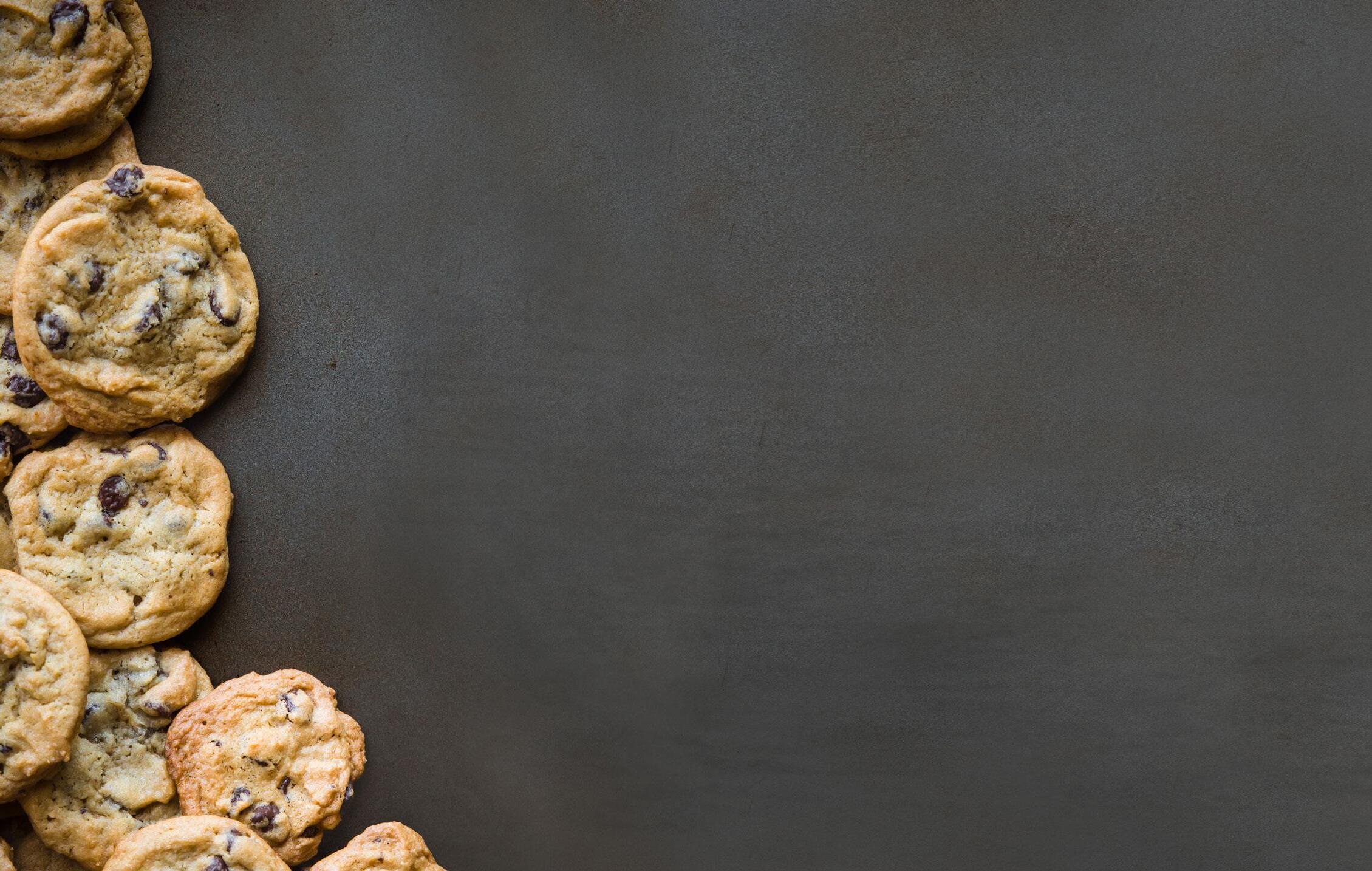
This salad is very colorful and fresh-tasting. The vibrant greens flecked with red, orange and black vegetables, as well as the white quinoa, paint an image of a righteously healthy bowl. For variety, add steamed vegetables such as beets and sunchokes [artichokes], or raw cucumbers or jicama.
⅓ cup white quinoa, washed and drained
¼ tsp plus a pinch salt, divided
½-inch fresh ginger, peeled and chopped
6 fresh curry leaves
½ green Indian or Thai chile, seeded (optional)
1 bunch kale (about ½ lb), washed, stems removed and torn into smaller pieces
1 tsp olive oil
Tiny pinch asafoetida [Indian spice]
¼ cup finely diced carrots
2 or 3 red radishes, diced
2 Tbsp celery, finely diced
¼ cup pitted black olives, chopped
¼ cup toasted pine nuts or walnuts
2 Tbsp fresh parsley leaves
1 Tbsp fresh mint leaves
2½ Tbsp olive oil
2 Tbsp fresh lime juice
1 tsp salt
¼ tsp freshly ground black pepper
In a medium saucepan, bring three cups of water to a boil over medium-high heat, then add the quinoa and one-quarter teaspoon of the salt. Cook uncovered for 12 to 15 minutes until a little tail-shoot separates from the seed. Drain. Spread on a plate or tray to let the quinoa cool completely.
In a food processor, finely chop the ginger, curry leaves and chile. Add the kale leaves and pulse until they are finely chopped but not pasty.
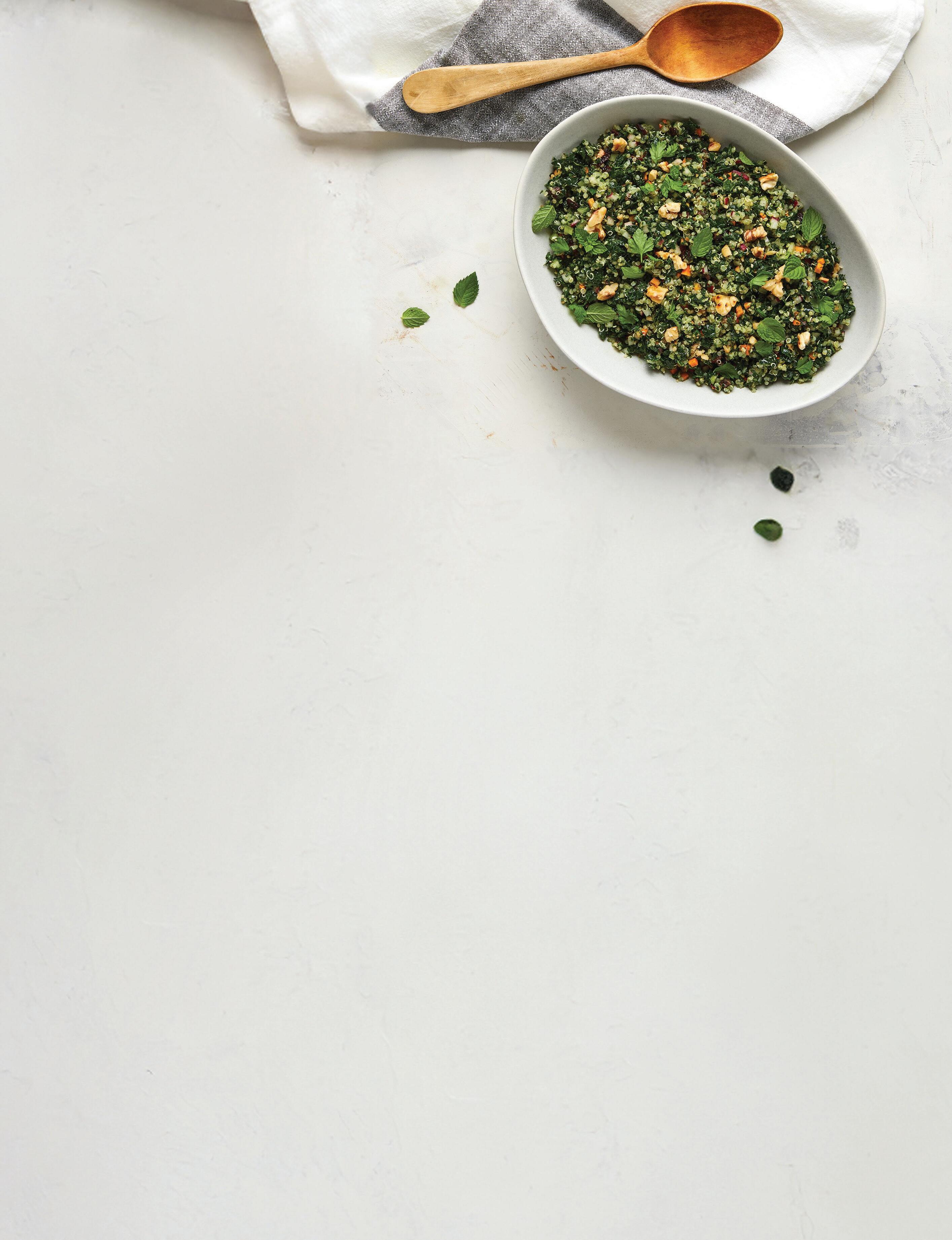
In a 10-inch skillet, heat the olive oil over low heat. Add the asafoetida, food-processed kale and carrots. Sauté for about three minutes, until the kale wilts but is still vibrant green and the carrots are softer but still crunchy. Season with a pinch of salt and set aside to cool.
In a small bowl, whisk together the olive oil, lime juice, salt and black pepper. Toast the pine nuts or walnuts in a small skillet on low heat. Move them frequently in the pan until they turn slightly golden in color. Transfer the nuts to a small bowl and let them cool completely.
In a large bowl, combine the quinoa, kale and carrot mixture, radishes, celery and olives. Just before serving, drizzle the dressing over the tabbouleh and toss to mix. Serve at room temperature and garnish each bowl with pine nuts, parsley and mint.
Recipe and photo courtesy of Chef Divya Alter from her cookbook, Joy of Balance (Rizzoli, 2022).

This delicious and attractive beverage presents with a beautiful ruby color and smooth texture. It stimulates digestive enzymes, soothes the digestive tract and delivers the many benefits of hibiscus and pineapple in a delicious way.
YIELD: 5 CUPS
¼ cup dried hibiscus flowers
2½ cups fresh sweet pineapple juice, strained 2 to 3 Tbsp maple syrup (optional)
Place the hibiscus flowers in a one-quart vessel and pour in three cups of room-temperature filtered or spring water. Cover and leave on the counter for at least eight hours or overnight. Strain and reserve the liquid; discard the hibiscus.
Stir together the hibiscus water and pineapple juice. Add the maple syrup to taste for additional sweetness. Enjoy at room temperature or slightly chilled. Store refrigerated for up to three days.
Recipe and photo courtesy of Chef Divya Alter from her cookbook, Joy of Balance (Rizzoli, 2022).


4g/5g Cell Towers/Antennas, Small Cell Nodes, Repeaters, Smart Meters, Electric, Gas & Water, Cell/Cordless Phones, Wifi, Bluetooth, Computers & Smart Devices.


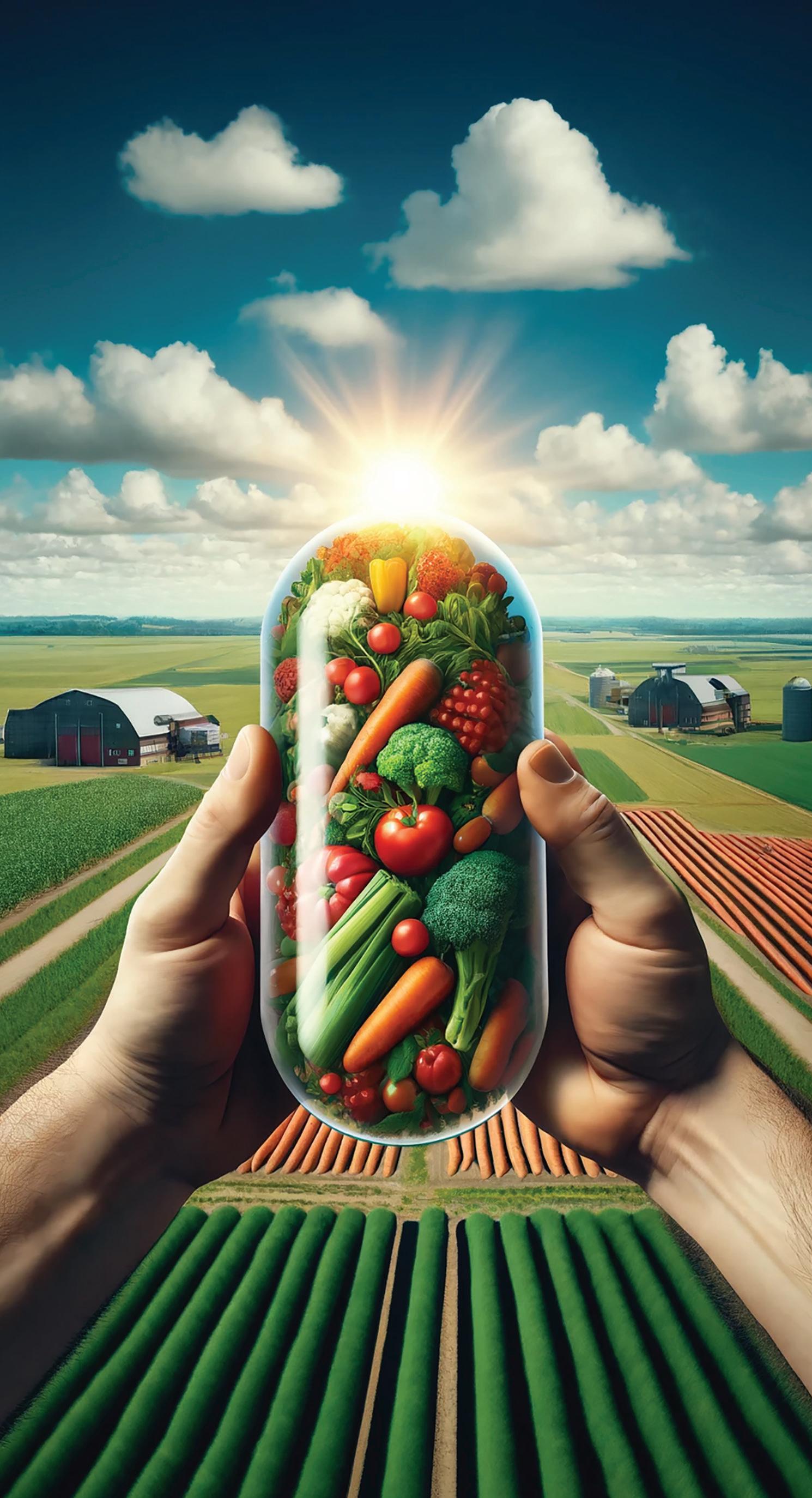
by Kelcie Ottoes
The global dietary supplement industry reached sales of more than $177 billion in 2023. Natural supplements are gaining more attention for their emphasis on whole-food ingredients and for their holistic approach to nutrition.
A nationwide survey by the Council for Responsible Nutrition found that 74 percent of American adults take dietary supplements, with 92 percent of users reporting that they are essential for maintaining health. According to the National Institutes of Health, although supplements cannot replace a healthy diet, they can help ensure adequate amounts of essential nutrients and improve health. For example, calcium and vitamin D support strong bones, folic acid decreases the risk of certain birth defects and omega-3 fatty acids may help some people with heart disease.
David Perlmutter, M.D., a neurologist and expert in gluten issues, brain health and nutrition, sees an increased role of supplements in the future. He explains, “The world of health care is moving to a place of recognizing the fundamental role of metabolism in general health and compromising health through chronic degenerative conditions. I think there is a place for appropriate use of nutritional supplements when they are developed and validated in this arena.”
“Most nutritional supplements are the product of something going on in a chemistry laboratory,” laments Perlmutter, adding that manmade supplements contain nutrients that are artificially created, which may be harder for the body to recognize and process.
“Synthetic supplements are loaded up with excipients like magnesium dioxides, silica, etc.,” explains David Stelzer, founder and chief executive officer of Azure Standard, a producer of organic foods and natural
products. “A lot of times, the minerals aren’t even predigested. If you’re taking iron, you wouldn’t be getting much better in those pills than if you were sucking on rusty nails, and that is not what the body can utilize.”
Sometimes referred to as farm-focused supplements, whole-food supplements are made by extracting nutrients from fruits, vegetables and herbs with an emphasis on raw, unprocessed ingredients. They often contain organic food extracts and include a variety of vitamins, minerals, enzymes, antioxidants and phytonutrients in their natural forms that can boost absorption, compared to synthetic alternatives.
Whole-food supplements come in the form of multivitamins, mineral formulas, herbal blends and specialized formulations. Some food products such as energy bars, shakes and powders may also incorporate wholefood supplementation to boost their nutritional value and provide a natural source of vitamins, minerals and antioxidants.
“What we want to look for [in food-based supplements] is that they are sourcing sustainably; that they’re emphasizing organic,
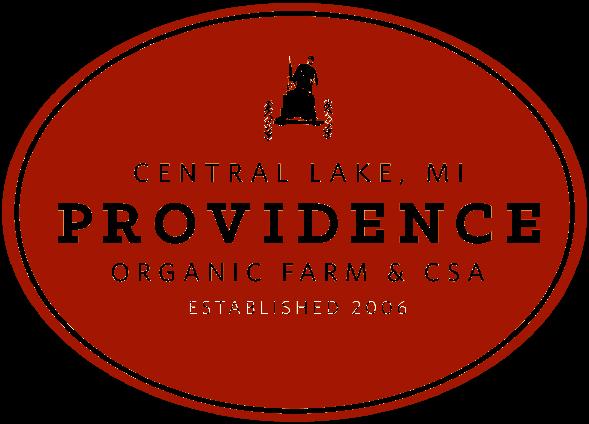
raw materials and non-GMO sources; that no harmful chemicals have been used, nor is there any part of the manufacturing process that does a significant amount of damage,” Perlmutter recommends. “Look for the emblems that indicate USDA Certified Organic ingredients. Some manufacturers also have B Corp certification, indicating the company is socially and environmentally sensitive.”
“Look at the source. Where is it from? What kind of products is it made from? What is being used as a flow agent or filler, if anything? How has it been produced? Make sure you can trust the company as well,” says Stelzer, adding that brands like Garden of Life, AzureWell, MegaFood and Standard Process promote their commitment to quality and transparency.
• Certifications: Choose products that are Food Alliance Certified, USDA Certified Organic, Demeter Certified Biodynamic, Non-GMO Project Verified and Rainforest Alliance Certified.
• Ingredients: Opt for organic ingredients and avoid supplements with artificial colors, flavors and fillers.
• Nutrient Density: Prioritize supplements that contain a variety of vitamins, minerals and phytonutrients from whole food sources.
• Manufacturer: Visit brand websites, looking for the transparency of their manufacturing, quality control and sustainability disclosures.
“Food should be our medicine,” insists Stelzer. “Supplements, in and of themselves, should be the exception rather than the rule. There are some folks with exceptions. When your body has been depleted in nutrients for an extended period of time, like those recovering from serious illnesses, supplements help their bodies to catch up. Also, if your body is depleted and showing signs of fatigue or illness, then there’s definitely a place for supplements.” As with any dietary changes, it is important to consult with a healthcare professional before starting something new.
Kelcie Ottoes is a content writer for sustainable businesses, specializing in blog posts, case studies and white papers. She is a frequent contributor to Natural Awakenings.

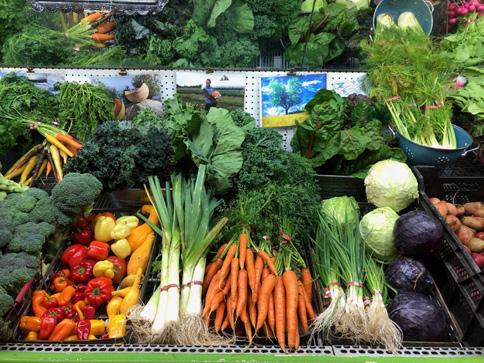



by Megy Karydes
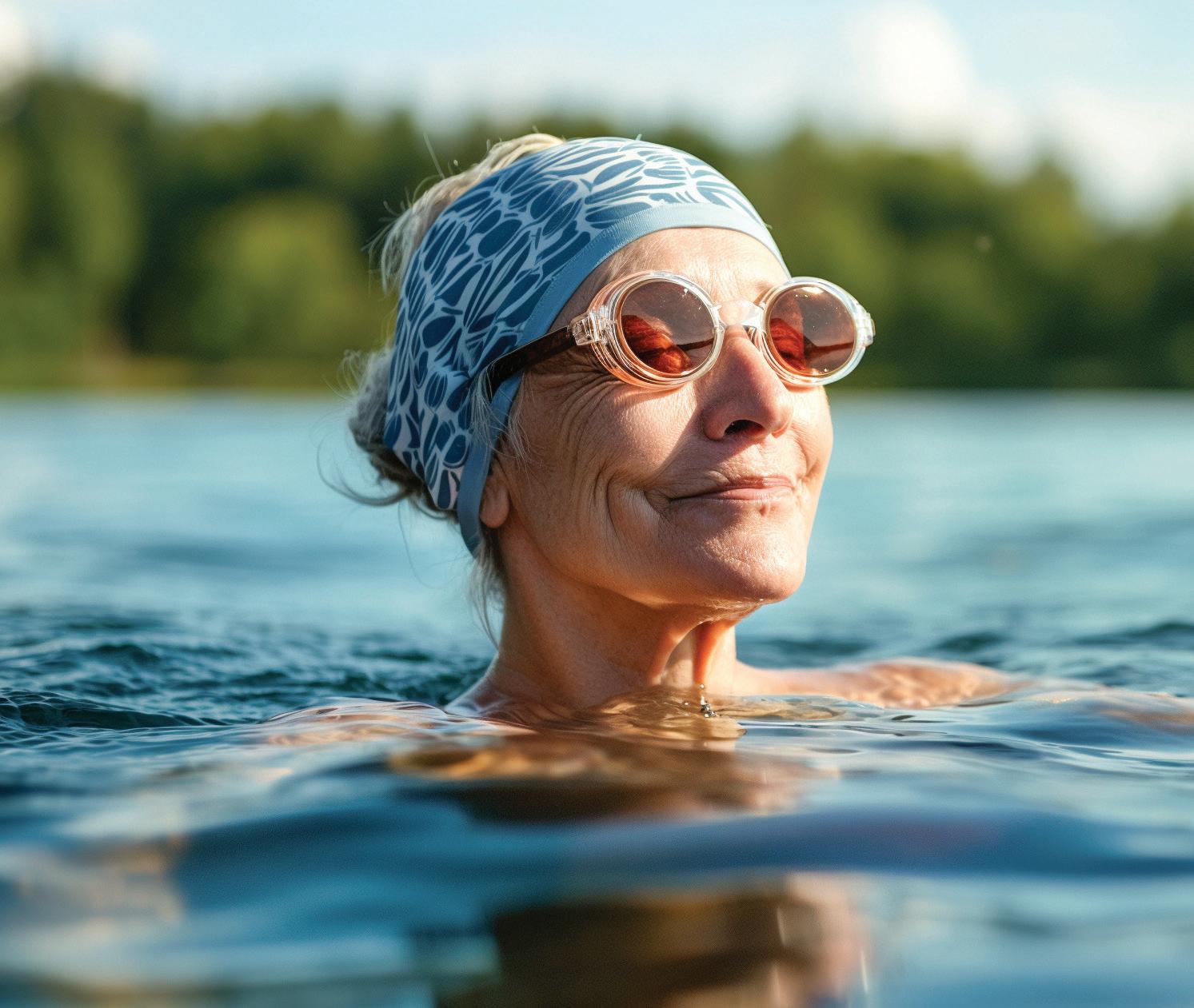


Whenever we’re swimming or participating in other water-based activities, all of our senses are engaged and exhilarated. Aquatic sports can help us stay fit, strong and cool during the hot summer months. Here are a few recommendations to remain safe and reap all of the splashy benefits.
Cullen Jones, a four-time Olympic medalist and the first African American swimmer to hold a world record, credits his parents for encouraging him to learn to swim even after he nearly drowned at a water park when he was 5 years old. “I recommend getting infants into the water as early as 6 months old. This helps the child get acclimated to the water and pool environment, easing things when it’s time for professional swimming lessons by a trained instructor,” says Jones, the water-safety expert for Leslie’s Inc., a pool- and spa-care retailer.

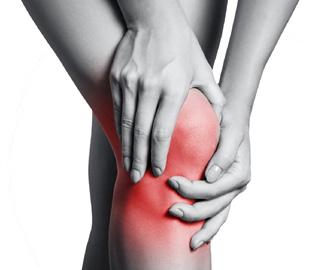


Jane Brenner, a water aerobics instructor and lifeguard at YMCA of Metro Chicago, similarly believes that it is never too early to expose young children to water and never too late to learn how to swim. “I see people starting their relationship and journey with water in their 50s, 60s and 70s,” she says. “And I think that’s just as beautiful.”
Water-Based Exercises
Jones notes that any exercise can be done in the water for the added benefit of staying cool. Activities such as running, aerobics, Zumba, cycling and resistance training become a bit harder in the pool, upping the workout benefits.
Hydrostatic pressure is another advantage. “When you get into a pool, even if you’re just holding on to the wall, even if you’re not doing anything, you are wearing a gentle compression sleeve around your whole body,” Brenner explains. “The water is pushing down on you in a way that you barely even notice. You can’t register that slight increase in pressure, but it’s more than the air, and that’s going to increase blood flow. It’s going to decrease pain and swelling. It’s going to do all that while decreasing impact on joints.”
“While other activities may target only one region of the body, water sports—and in
particular, swimming—offer a full-body workout,” Jones asserts. “When it comes to swimming, you are using your legs to kick, your arms to paddle and your core to hold it all together. Swimming delivers a whole-body workout and mind-enhancing experience.”
While people can and do enjoy being in the water without knowing how to swim, Brenner notes that anyone that feels they can’t learn is selling themselves short. “I really believe that there is space for a relationship with swimming and water in every person’s life,” she says.
Jones admits it took working with five swim coaches before it clicked for him. Had it not been for his parents’ persistence, he never would have become an Olympic swimmer and gone on to win medals.
According to a 2023 survey commissioned by Leslie's and conducted by The Harris Poll, only 63 percent of U.S. adults say they are very comfortable being around water, and as much as 36 percent of those surveyed say they do not know how to swim. Nearly half the parents of children under 18 say their child does not know how to swim, and 61 percent say their child has not taken
swimming lessons. At the same time, almost 30 percent of parents say they are concerned about their child drowning.
“Swimming lessons save lives,” Jones says. “It’s also an important life skill that can open up a whole new world of recreational and athletic possibilities, such as boating, fishing and competitive swimming, among others.” Still, Brenner and Jones say non-swimmers may enjoy the benefits of being in the water, whether to stay cool in the summer or to stay healthy and fit, both in mind and body.
Brenner teaches water aerobics to people from all walks of life and all ages. She notes that there is a real sense of community that happens in those 50-minute classes. “People are bringing cookies, and others are telling us about the garage sale that’s happening down the street,” she quips. In addition to the physical benefits of water fitness, coming together at the community pool or in a natural body of water offers mental-health rewards and fellowship.
Megy Karydes is a Chicago-based writer and author of 50 Ways to More Calm, Less Stress: Scientifically Proven Ways to Relieve Anxiety and Boost Your Mental Health Using Your Five Senses.
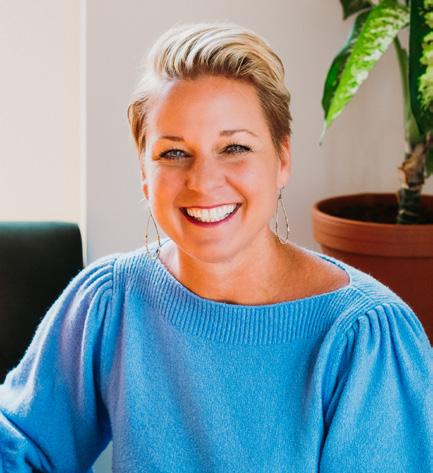
by Maya Whitman

“L“To make meaningful connections, employ conscious compassion.”
ove and compassion are necessities, not luxuries. Without them, humanity cannot survive,” says the Dalai Lama, who celebrates his 89th birthday this month. Kindness is critical to our existence, and altruism—the authentic inclination to help or inspire others—offers health benefits for both the giver and receiver. According to Waguih William IsHak, a professor of psychiatry at Cedars Sinai Medical Center, in Los Angeles, repeated acts of consideration for others boost oxytocin (the love hormone), dopamine (the feel-good chemical) and substance P (a key neurotransmitter in pain reduction).
Benevolence not only make us feel good, but also provides health rewards. Research published in Psychoneuroendocrinology in 2017 shows a correlation between generosity and favorable changes in immune-cell gene expression, most notably helpful in the presence of cancer and cardiovascular disease.
Being kind to others can even improve our own mental health. A 2021 study published in Frontiers in Psychology found that participants with low-to-moderate levels of mental well-being experienced mental health improvements after performing acts of kindness for others. A 2022 study in The Journal of Positive Psychology concluded that acts of kindness were more effective in reducing anxiety and depressive disorders than cognitive behavioral therapy.
Applying genuine thoughtfulness in our daily lives ripples outward. “Unlike random acts of kindness, intentional kindness is not always easy or convenient, but it’s always impactful,” says Tracey Gates, a kindness ambassador, author and wellness coach in Pennington, New Jersey. “It’s inviting the new student to sit at your table or being late for your appointment because a friend was in need.”
To make meaningful connections, Gates recommends employing conscious compassion, which has been pivotal in her own journey through a stressful work environment, caring for her mother and negative news when her health buckled under an autoimmune disease. “I needed to do something to tip the scales back toward positivity in my life, so I decided to conduct an experiment,” explains Gates. “If daily stress could impact me physically and emotionally, what would happen if I put a daily dose of kindness on my to-do list?”
Bringing back passenger rail to Traverse City and Petoskey from Ann Arbor and Detroit is good for Michigan. TAKE ACTION at GroundworkCenter.org/ a2tc-rail-project/

“Altruism—the authentic inclination to help or inspire others—offers health benefits for both the giver and receiver.”
Inspired by her late father, who always requested “a few kind words” instead of tangible gifts, she challenged herself to craft an unexpected, handwritten letter of appreciation to a different person every day for one year. The results were transformational in her own life and health and led to her book, The Power of a Few Kind Words: Create a More Meaningful Life, One Letter at a Time. “What I learned is that we are much more alike than we are different. We all just want to know we matter.”
Reaching out to others “can be as simple as sharing your time with no agenda, being curious, asking questions or offering to walk someone’s dog,” attests Jennifer Schmeisser, a health and wellness coach in Dublin, Ohio. “Kindness is much more than being polite. The world throws so much at you, and approaching it from an intentional place of kindness versus overwhelm is a game-changer.”
As a dedicated mother of an autistic son, Schmeisser has experienced unkind responses from strangers through the years, something she has taken as an opportunity to teach others sensitivity simply by being a positive example and not lashing out. “The intrinsic value of kindness is a larger picture of humanity outside oneself, regardless of gender, age, religion or ethnicity.”
For Gates, a more compassionate society begins at home. “If you want kindness, empathy and compassion to be core values in your child’s life, then it needs to be a core value in your life,” she says. “As a family, share each night around the dinner table how you were kind today and how and if someone was kind to you.”
Talk of “self-care” is common these days, but to achieve well-being, we must put it into practice. “For me, self-kindness is letting go, not taking all the responsibilities on my shoulders and letting myself be human. Kindness is forgiving my flaws and allowing space for the hard emotions, too,” says Schmeisser.
For Gates, being kind to ourselves makes it easier to be kind to everyone else. It also involves unplugging from screens and reconnecting to others in real time. “Get out of your chair and put your phone down,” she affirms. “Ask a colleague how their vacation was or how life with a new puppy is going. Kindness and benevolence are readily available medicines to ease the burden of our technological age.”
Maya Whitman is a regular contributor to Natural Awakenings.

Monday-Friday: 8:30am - 5pm
8:30am - 4pm
by Thais Harris, BCHN

There is a growing disconnect between children and the origins of their food. It stems from the urbanization of communities and the prevalence of processed foods. As a result, many children don't know how their food is grown, processed and brought to them, contributing to a lack of understanding about the nutritional value and environmental impact of their choices.
A 2012 study by Stanford University showed that teaching young children that food is a source of diverse nutrients and explaining the importance of eating a variety of healthy ingredients significantly improved their understanding of nutrition, and even prompted them to voluntarily eat more vegetables at snack time.
“Gardens are a crucial part of how we change eating patterns and teach about health,” shares Sara McCamant, program director at Ceres Community Project (CCP), a nonprofit that provides meals to people facing health crises. “We put youth at the center of our program with the goal of having them understand where food comes from, as well as learning how to cook it, so it can create health. It is crucial that they understand the bigger picture of how food is grown and how the food system impacts access to healthy food. Many youth are also very concerned about the environment and climate change, and learning about growing food in a sustainable way gives them a way to make an impact on the environment.”
CCP reports that teens participating in their programs are more motivated to consume vegetables and fruits than other kids their age: 54 percent are eating six or more servings of produce a day. By contrast, only 22 percent of California teenagers that have not experienced CCP activities eat five or more servings a day.
Pilot studies by Harvest for Healthy Kids and the National Institute of Food and Agriculture both found that hands-on experiences with different fruits and vegetables in the classroom, garden and kitchen caused children to be more likely to taste and enjoy a wider variety of foods.
“Children’s limited recognition of food mirrors a deeper loss of cultural identity and heritage,” laments Sebastian White, founder, president and executive director of The Evolved Network. The limited understanding of food through commercial packaging not only deprives children of the rich stories and meanings embedded in their cultural diets, but also reflects broader implications for how they perceive and interact with the world.
“The Evolved Network addresses these issues by integrating the tangible aspects of food preparation, such as cooking skills and community building, with intangible values like cooking with love and the significance of meals as communal gifts,” White explains. “This holistic approach fosters a sense of purpose and inclusivity, treating food education as both therapeutic and educational, with the goal of restoring a deep connection to food that transcends mere nutrition and taps into cultural identity and self-expression.”
Empowering children with knowledge about their food sources is a vital step toward fostering a healthier and more sustainable future. By engaging in hands-on experiences and understanding the journey of food from seed to plate, children can develop a deeper appreciation for nature, make informed dietary choices and support the environment.
• Visit local farms or farmers markets. Encourage children to ask farmers about how food is grown and the significance of seasonal produce. This direct connection can spark curiosity and appreciation for the hard work behind each item on their plate.
• Start a family garden. Create a small bed or planter box so children can grow some of their own vegetables, herbs and fruits. This active participation not only teaches them about the growth process, but also instills a sense of responsibility and pride in nurturing and harvesting their own food.
• Cook together using fresh, whole ingredients. Teach children how to read labels and choose organic and minimally processed options. Preparing meals together provides an opportunity for practical learning about nutrition and the importance of making healthy choices. Plus, it’s a fun way to bond and instill lifelong skills.
• Eat as a family. Sit-down meals with kids can leave a lasting and positive impression, fostering a lifelong appreciation of dietary quality and communal dining. A 2007 five-year study published in the Journal of the American Dietetic Association found that more frequent family meals during adolescence predicted a higher consumption of fruits, vegetables and key nutrients, and a lower consumption of soft drinks. The young people also placed a higher priority on meal structure and social eating.
Thais Harris is a holistic nutritionist and author. Her children’s book, Little Red, teaches children about the benefits of consuming fresh fruit. Find recipes and resources at NourishTogether.com.



Discover bespoke cannabis solutions for sleep, pain, weight loss, anxiety, and PTSD.
When Kelly Young, Founder of Torch Cannabis Co and My TCBD endeavored to become a cannaprenuer, she envisioned helping the small marijuana farmer utilize their waste. This initial business goal developed into something much bigger that is now a storefront in downtown Central Lake; bringing a niche to our Northern Michigan region for custom-made cannabis formulations designed to help people with their wellness goals. Kelly offers one-on-one personalized consultations for the use of her products, and below are just a few examples of the health and wellness goals she has helped customers with:
Free gifting program for cancer patients and veterans.
In addition to helping customers understand how to use cannabis and pairing them with the best blend to suit their needs, Kelly also offers the following services:

To learn more about Kelly, scan QR Code to check out previous articles written by
SATURDAY, JULY 5
New Moon Sound Bath Meditation with Crystal Bowls – 9am. Waterside Wellness invites the community to join Alice Rubert and co-host Denise Manns for an enchanting New Moon Sound Bath Meditation. Taking place in the serene gardens of Pine Hill Nursery, in Kewadin, this unique event offers a rejuvenating experience that harmonizes with nature’s rhythms. 886 US-31, Kewadin. 231-5992824. PineHill-Nursery.com.
SATURDAY, JULY 6
Made in Cheboygan Craft Show – July 6-7. 10am-6pm, Sat; 11am-5pm, Sun. Featuring more than 40 crafters & artists. Washington Park, Downtown Cheboygan. Facebook.com/madeincheboygan.
WEDNESDAY, JULY 10
Norte Slow Roll – 6-7:15pm. Show up, slow down, and explore your community at an entirely new pace. Free. Start at Oryana 10th St and finish at The Little Fleet. Oryana.coop.
FRIDAY, JULY 12
Paper Mache Mushrooms – 5-7pm. Get crafty by creating a 3D statement piece for your home. $15/person. Oleson Pavilion, Boardman River Nature Center, 1450 Cass Rd, Traverse City. Registration required: NatureIsCalling.org.
SATURDAY, JULY 13
Elk Rapids Arts & Craft Show – 10am-4pm. More than 70 artisans & crafters displaying & selling their works. Pet friendly, family friendly. River St, Downtown Elk Rapids. ElkRapidsChamber.org/arts-crafts-show.
SUNDAY, JULY 14
Restorative Yoga Sound Journey – 4-6pm. A supported, breath-centered restorative yoga practice paired with soothing and healing sounds. All welcome; no prior experience with yoga necessary. $40. Dharamsala TC, 869 Robinwood Ct, Traverse City. 231-421-3808. DharamsalaTC.com.
TUESDAY, JULY 16
Wellness in the Woods – 2-3:30pm. During this walk at Brown Bridge Quiet Area, a GTCD naturalist will lead participants on a trail to slow down and use their 5 senses. Free. Meet at the Canoe Landing on Brown Bridge Rd. Registration required: NatureIsCalling.org.
5 Hidden Sources of Stress & Inflammation – 8-9pm. Inside the CBC with differential (the lab test worth the price of
gold). In this live workshop, Dr. Jena will teach you how to read your own labs from a functional medicine perspective to get hidden answers as to why you are having symptoms and yet get told that your labs are “normal.” Free. BloodworkExpert.com.
WEDNESDAY, JULY 17
Adrenal Fatigue? – 8-9pm. Learn the blood markers that tell how you are really adapting to stress. In this live workshop, Dr. Jena will teach you how to read your own labs from a functional medicine perspective to get hidden answers as to why you are tired, worn out, not sleeping, depressed and/or anxious and yet get told that your labs are “normal.” Free. BloodworkExpert.com.
THURSDAY, JULY 18
Forest Community Workshop – 2-4:30pm. We’ll be discussing the natural history, current features, management practices, and threats to the health of Michigan’s magnificent forests. We’ll conclude by exploring the concepts we’ve learned with a guided hike of the Natural Education Reserve. Free. Oleson Pavilion, Boardman River Nature Center, 1450 Cass Rd, Traverse City. Registration required: NatureIsCalling.org. The Real Thyroid Panel – 8-9pm. Get the real story of what’s happening with your thyroid. In this live workshop, Dr. Jena will teach you how to read your own labs from a functional medicine perspective to get hidden answers about your thyroid even when you are told that your labs are “normal.” Hint: It’s more than just the TSH. Free. BloodworkExpert.com.
FRIDAY, JULY 19
Troubled Water Film Screening –7:30pm. Film screening followed by a question-and-answer session with actor & filmmaker William Wright, & staff of the host organizations. $5. The Garden Theater, Frankfort. The Garden Theater, 301 Main St, Frankfort. Tinyurl.com/2zp6ff66.
SATURDAY, JULY 20
An Evening with Live Raptors – 5-6pm. Join Skegemog Raptor Center for an interactive and informational presentation about the raptors of Michigan featuring live raptors. Geared toward adults. $15/ person. Boardman River Nature Center, 1450 Cass Rd, Traverse City. Registration required: NatureIsCalling.org.
SATURDAY, JULY 21
Full Moon Sound Bath Meditation with Crystal Bowls – 9am. Waterside Wellness invites the community to join Alice Rubert and co-host Denise Manns for
an enchanting Full Moon Sound Bath Meditation. Taking place in the serene gardens of Pine Hill Nursery, in Kewadin, this unique event offers a rejuvenating experience that harmonizes with nature’s rhythms. 886 US-31, Kewadin. 231-5992824. PineHill-Nursery.com.
THURSDAY, JULY 25
iNaturalist Workshop – 5:15-6:45pm. Learn how to use this tool to observe flora and fauna and then upload it into the iNaturalist (or its partner app, Seek) database. Mitchell Creek Meadows: The Don and Jerry Oleson Preserve, 2846 3 Mile Rd N, Traverse City. Registration required: gtrlc.org.
FRIDAY, JULY 26
Night at the Nature Center – 5-7pm. Be a nature detective and complete an educational scavenger hunt and learn about Michigan Animals and ecosystems through the soft glow of lanterns. Free. Boardman River Nature Center, 1450 Cass Rd, Traverse City. Registration required: NatureIsCalling.org.
SUNDAY, JULY 28
Mushroom Hike at Elmer Johnston – 122pm. Join Amy Lipson and friends for a mushroom hunting adventure. If mushrooms are not readily found on this day, we will change to a regular nature walk. Registration required: LandTrust.org.
THURSDAY, AUGUST 1
Edible Mushroom ID Walk – 5-6:30pm. Join GTCD naturalists on a walk through East Creek Reserve to identify edible mushrooms growing in August. $15/ person. East Creek Reserve, meet at the parking lot on Mayfield Rd. Registration required: NatureIsCalling.org.
Infinite Path Martial Arts Customized Virtual Learning – For self-defense and fitness with Christopher Scafone. More info: 248-284-3242, IPMAContact@yahoo. com or InfinitePath.net.
Sacred Lights Collective Events – A digital platform and virtual community for seekers and facilitators to walk the spiritual path together offering daily classes, groups and workshops. With Aria Mae Everts. Virtual. 774-578-2762. Sacred LightsCollective.com.
Holistic Health Consultation – 9am-7pm. Online or phone consultation consultations last about 1 hr and are provided by Certified Xolar Vibronics Holistic Educator and Life Coach Ikaro Phoenix. Be introduced to various techniques, elements or holistic ways of viewing the situation which help the soul to be reeducated and empowered to deal with problems and eliminate them from their root. $150. For appt: LivingWisdomCoaching.earth.
Naturally Purifying and Supercharging Your Body Podcast – 7-7:45pm. Matthew Hazen is the owner of Human Consciousness Support, a company that produces a unique nutraceutical product called MasterPeace. Free. BuzzSprout. com/1206776/14236700.
Gyrokinesis Group Class – 8:30-9:30am. Educate your spine how to sit, stand and move with ease throughout your day. Suitable for those with spinal ailments and powerful enough for those who love working out. $20/class; $100/6 classes. Bodies In Motion, 10660 E Carter Rd, Traverse City. 231-392-1241. MiaTraverseCity.com.
Kundalini Yoga – 10am. A dynamic, powerful tool that is designed to give you an experience of your energetic body. All levels. Sliding scale $10-$20. New Moon Yoga, 10781 E Cherry Bend Rd, Traverse City. 231-392-5813. NewMoonYogaStudio.com.
Soul-Stirring Yoga Sundays – 10am. In-person and live online with Crystal Turner. Each class is a multi-level class, allowing for exploration and expansion to flourish from the inside-out. $20. Karasi Fitness and Healing Arts, 104 S Union St, Ste 204, Traverse City. 231-492-9206. Karasi FitnessAndHealingArts.com.
MONDAYS
Cancer Care Support Discovery Call – 6-6:30pm. For those looking to incorporate a holistic, functional element of care into their cancer treatment plan by working in conjunction with your oncologists, surgeons, primary care physician and physical medicine practitioners. More info: MIHolisticMed.com.
TUESDAYS
Charlevoix Senior Center Veteran Social & Lunch – 9am-1pm. 1st Tues. Honoring our veterans. Social beginning at 9am and Free Lunch for Veterans at 11:30am. Charlevoix Senior Center, 06906 Norwood Rd, Charlevoix. Charlevoix.org.
“Sew”cial Day – 10am-6pm. 1st Tues. Grab some interruption-free sewing time with help and support to get you through your projects. A great chance to meet up in a
safe space and enjoy some sewing time. Juneberry Cottage, 220 N Main St, Evart. RSVP: JuneberryCottage.com.
Empowerment Circle – 10:30-11:30am. With Heather Zigler. By bringing new light to an ancient and traditional tool used by indigenous people around the globe. Circles are a place to transform ME to WE as a space where the principle of sharing power with each other exists instead of having power over one another. 1st class free. Pure Essence Wellness Center, 1240 E 8th St, Traverse City. 231499-8595. HeatherZigler.com.
Wildflower Walk – Thru Aug. 10:30am12pm. Take a leisurely stroll through the scenic trails of Grass River Nature Area alongside knowledgeable docents Lyn Petty and Phil Jarvi. Free; donations accepted. Grass River Education Center, 6500 Alden Hwy, Bellaire. Register: GrassRiver.org.
Spiritual Guidance and Readings – 11am7pm. With Julie Chai. Receive various forms of spiritual consultations such as clairvoyant readings, aura healings, oracle card interpretations and past life readings. $1/min. Higher Self Bookstore, 313 E Front St, Traverse City. For appt: 231-941-5805. HigherSelfBookstore.com.
Hand Work – 12-4pm. 2nd Tues. Work on a project of your choice. Think of it as the non-electrical side of sewing, piecing and quilting. Juneberry Cottage, 220 N Main St, Evart. RSVP: Juneberry Cottage.com.
Traverse City Women’s Circle – 6pm. 2nd Tues. With Be Here Now Baby. Offering women a safe space to connect, share and empower each other. Donation. Dharamsala TC, 869 Robinwood Ct, Traverse City. 231-421-3808. DharamsalaTC.com.
5 Hidden Gems in Your Normal Blood Work – 8-9pm. 3rd Tues. Join Dr. Jena for her Bloodwork Webinar and learn 5 hidden gems that can help you go from unhealthy to healthy. Free. BigBeautiful Chiropractic.com.
Empowerment Circle – 5:30-6:30pm. See Tues listing. Pure Essence Wellness Center, 1240 E 8th St, Traverse City. 231499-8595. HeatherZigler.com.
Community Slow Roll TC – 6-8pm. With Norte Youth. A weekly ride from Oryana to The Little Fleet. The route is 3-5 miles and the pace is accommodating for all abilities. 260 E Tenth St, Traverse City. 231883-2404. Hello@NorteYouthCycling.org. NorteYouthCycling.org.
Wine Down Wednesdays at Castle Farms – 6-8pm. Visit 1918 Cellars for live music, food, wine and more. No tickets necessary to enjoy the music. Check their lineup to see who’s going to be perform-
ing this summer. Castle Farms, 5052 M-66, Charlevoix. CastleFarms.com.
Your Lipid Panel: What Bad Cholesterol Really Means – 8-9pm. 3rd Wed. Grab your latest bloodwork and let’s dive into your bloodwork and let me teach you how to look for hidden answers. Free. BigBeautiful Chiropractic.com.
Cultivating Gratitude Sessions – 9am6pm. Join Candice for a 1-on-1 Zoom session focused on cultivating gratitude. We will walk through the 5 stages of cultivating gratitude (safety, open, notice, appreciate, express), learn what genuine gratitude feels like in your body, then find ways to bring more of it into your day-today life. $33. Tinyurl.com/6vhzuycp. Weekly Facebook Live with Dr. McSwain – 5:30-6pm. More info: MIHolisticMed.com.
TOPS (Take Off Pounds Sensibly) –5:30pm, weigh-in; 6-7pm, meeting. Weight loss support group. $49/yr. Haslett Middle School, 1535 Franklin St, Haslett. tops.org. The Goddess Workout Beginner Hula Dance Class – 6:30-7:30pm. For absolute beginners of all ages, sizes and shapes. Learn basic hula moves and combinations. $80/8-wk session, $15/drop-in. First Congregational Church, 8066 W State St, Central Lake. AmiraHamzarRaks.com. The Thyroid Panel: Get the Real Story of What’s Happening with Your Thyroid – 8-9pm. 3rd Thurs. Learn how to find hidden answers in the bloodwork that you already have so that you can finally get some answers as to why you feel the way you do. Free. BigBeautifulChiropractic.com.
FRIDAYS
Online: Prayer Power Hour – 12-12:30pm. Prayer changes things. Our goal is simple: to love you, pray for you, and introduce you to our loving Creator, the Great Healer. Free. Tinyurl.com/PrayerPowerHour. Sacred Drum Circle – Thru Oct. 7pm. 2nd Fri. No experience necessary. No drum necessary, but feel free to bring an acoustic item of your own making. Free. The House of Bear, 4242 Co Rd 633, Grawn. 231-383-0803. Tinyurl.com/3wxk8uaz.
SATURDAYS
Mindful Morning Flow – 8-9am. In-person and online. Gently energize your body and focus your mind, drawing attention to each movement and breath to each posture in this Vinyasa-style practice. $25 in studio, $15 virtually (bundle 6 classes for $120). True Balance Fitness, Nutrition and Wellness, 1128 S Garfield Ave, Traverse City. 231-519-0808. TrueBalanceLife.com.
Secure your growing space!
Text us today. 734-757-7929
EARTH LABS
317a E Front St, Traverse City
231-421-1490
EarthLabsHeal.com

Subtle modalities including sound, light, frequency and thrmogenic therapies to enhance and transform your quality of life. Our techno-therapy will reduce pain and restore energy. NATURE'S
Covering all of Northern MI
NaturesTradingPost.com

•
GOOD WAVES EMF INVESTIGATOR
Serving Central to Northern MI 231-714-0477
EMFInvestigator.com

Many unexplained health issues are showing links to Cell Phones/Towers/Wi-Fi (with levels now stronger than bodies naturally adapt to). We detect EMF-related causes by determining sources of harmful radiation & offer solutions to mitigate them. See ad page 17.
BIG BEAUTIFUL LIFE WELLNESS CENTER
515 S. Union St, Traverse City 231-421-9189
MY CBD Kelly Young MyTCBD.com
Dr. Jena is a Functional Blood Chemistry Expert. Ever been told that your blood work is normal, yet you still know or feel something is wrong? Let Dr. Jena evaluate your blood labs from a different perspective and get real answers and results.




All-natural CBD products. We source from only organic, environ mentally socially responsible companies that believe in cruelty-free testing. Life is too short to feel anything less than your personal best. Ask about our distributor options where you can be your own boss. See ad page 25.
145 E Front St, Traverse City 231-947-7423
SpiceMerchants.biz/traverse-city-spice-store

Providing
ad page 15.
BigBeautifulChiropractic.com
Specializing in hormonal balancing for women and root cause resolution. Ever been told that your blood work is "normal" yet you still have unexplainable symptoms? Dr. Jena is a Functional Blood Expert and specializes in finding hidden answers in the blood work that you already have to take you from unhealthy to healthy. Telehealth and in-person appontments are available. See ad page 21.
PROVIDENCE ORGANIC FARM, CAFÉ & NATURAL FOOD MARKET
5695 N Michigan 88, Central Lake 231-599-2020
ProvidenceOrganicFarm.com

Charming farm-market, cafe and natural foods store at their farm, featuring organic espresso and tea bar, kombucha on tap, organic produce and meats, local honey, maple syrup, eggs, cheese, gift items and much more. See ad page 19.

IRISH PAINTING OF NAPLES
989-275-9976

Offering full exterior & interior painting for Northern Michigan. We also offer low & zero VOC paints for the most economical Healthy home.
WATERSIDE WELLNESS
212 River St, 2nd Floor, Elk Rapids WatersideWellnessER@gmail.com 231-632-4408
WatersideWellness.co
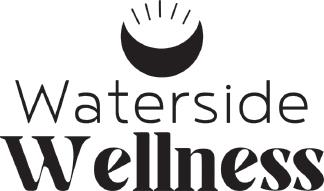
Our mission is to provide a safe and judgement- free healing space! We offer group and private guided meditations, Primordial Sound Meditation, and tailored massage therapy sessions. Stay tuned, more to come!
THE HEALTH HUB
3492 W Park Rd, Luzerne, MI 48636
(corner of M72/Deeter Rd)
TheHealthHubLLC@gmail.com 989-745-2898
TheHealthHubLLC.com
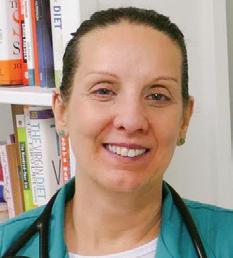
The mission of The Health Hub is to provide health care rather than sick care; to look beyond just the symptoms, understand the root cause, prevent future disease and restore health; implemented with genuine concern for our clients. See ad page 13..
WHOLE HEALTH TRAVERSE CITY
3639 Cass Rd, Traverse City 231-943-2100
WholeHealthTC.org

We help people suffering with chronic joint and muscle pain, and peripheral neuropathy to decrease pain, increase quality of life, and maximize their competitive edge. See ad page 20.
AUTHENTIC HEALTH
415 E Front St, Traverse City 231-633-9393
AuthenticHealthLLC.com
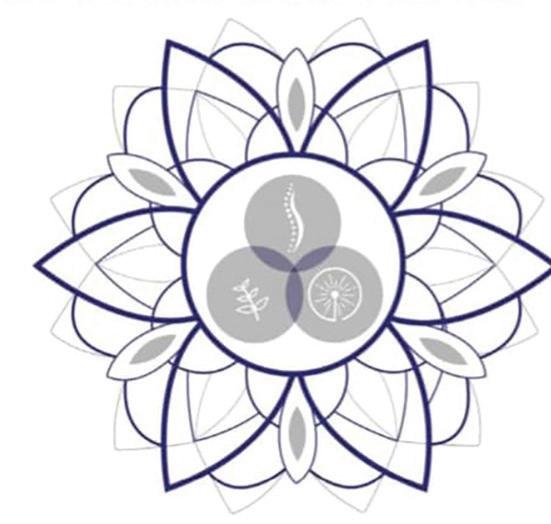
The mission of Authentic Health is to facilitate healing by serving the whole person nutritionally, structurally and energetically, using nutritional therapy, chiropractic care and cold laser. See ad page 7.
LIST YOUR BIZ IN THIS WELLNESS DIRECTORY! Text Now for Special Rates! 734-757-7929












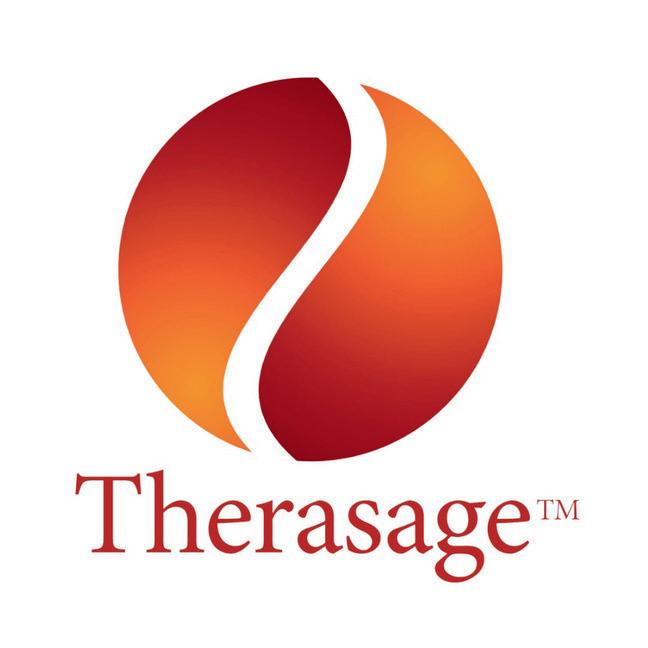

Therasage.com
Scan




Founded in 1932, Boiron, the world leader in homeopathic medicines, is best known for its popular Arnicare® line of pain relievers and Oscillococcinum® flu reliever.
BoironUSA.com
Save 20% with code NA20











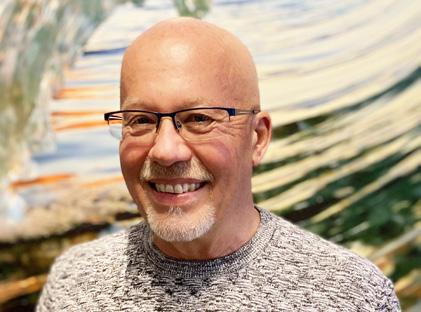
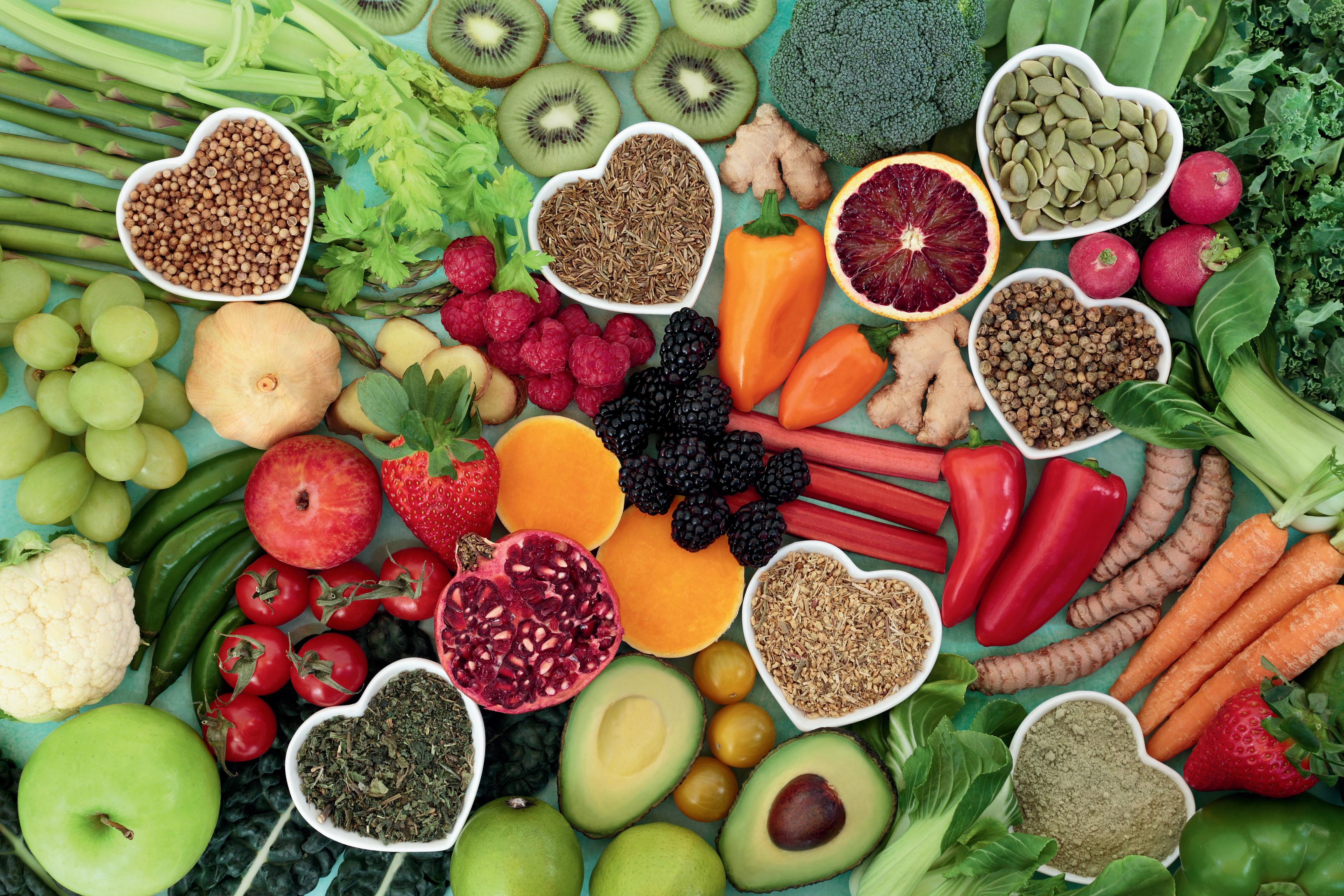









Eco-Friendly and excelling in:
Biological Dentistry
Bio Root Canal Removal
Ozone Therapies
Cavitation Treatment
Safe Metal Removal
Toxin Elimination
Nutrition Healing
Laser Dentistry
Minimally Invasive
Organic Options
Essential Oils + CBD
Bio Compatibility Testing
Heavy Metal Testing
Root Canal Prevention
Remineralization
Biomimetic Fillings
Oral Probiotics
dental elements:
Gluten-Free Options
BPA-Free
Bis-GMA Free
Metal Free
Zirconia
dental cleanings:
Fluoride Free
Preservative Free
Ozone
Oral Cancer Prevention
Laser

Ozone dental therapy is an effective and natural way to reduce infection, pathogens, as well as inflammation. It is an outstanding preventative treatment to help patients avoid the need to undergo procedures such as fillings and root canal treatments. When applied to the teeth and gums, ozone removes bacterial waste products, halts the advance of cavities, accelerates remineralization, and contributes to the strengthening of teeth.
Can treat certain tooth decay
Comfortable and quick treatment
No drills or invasive procedures
Minimizes patient anxiety
Safe and effective for young children




